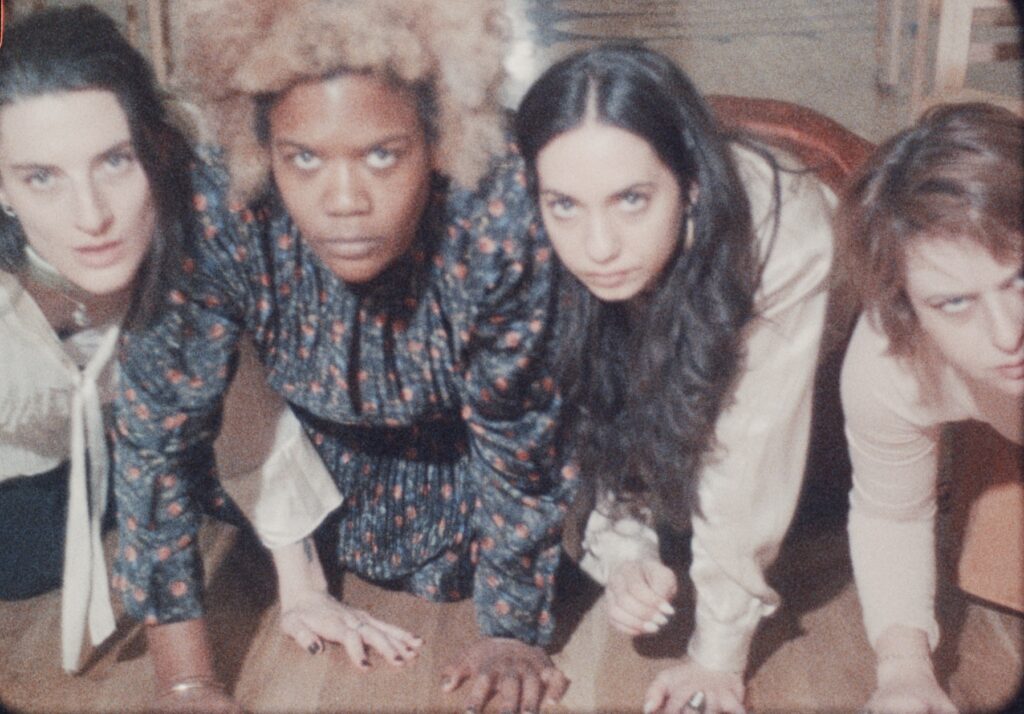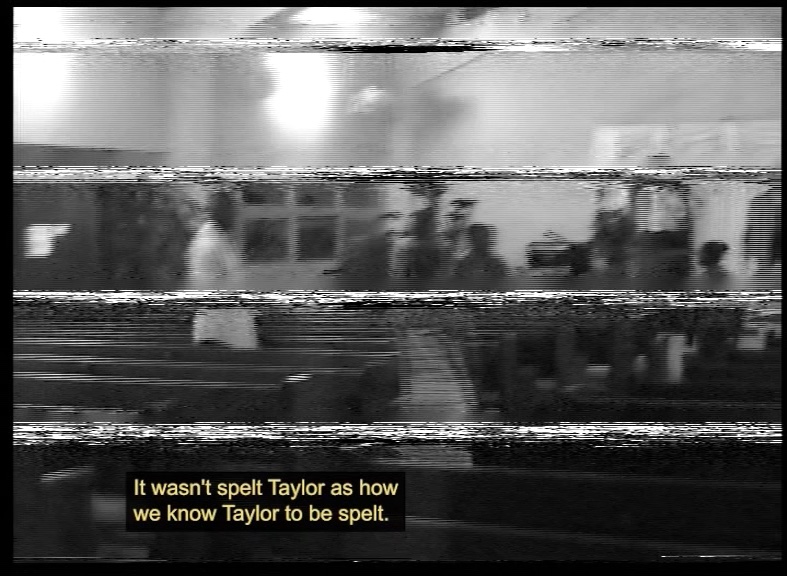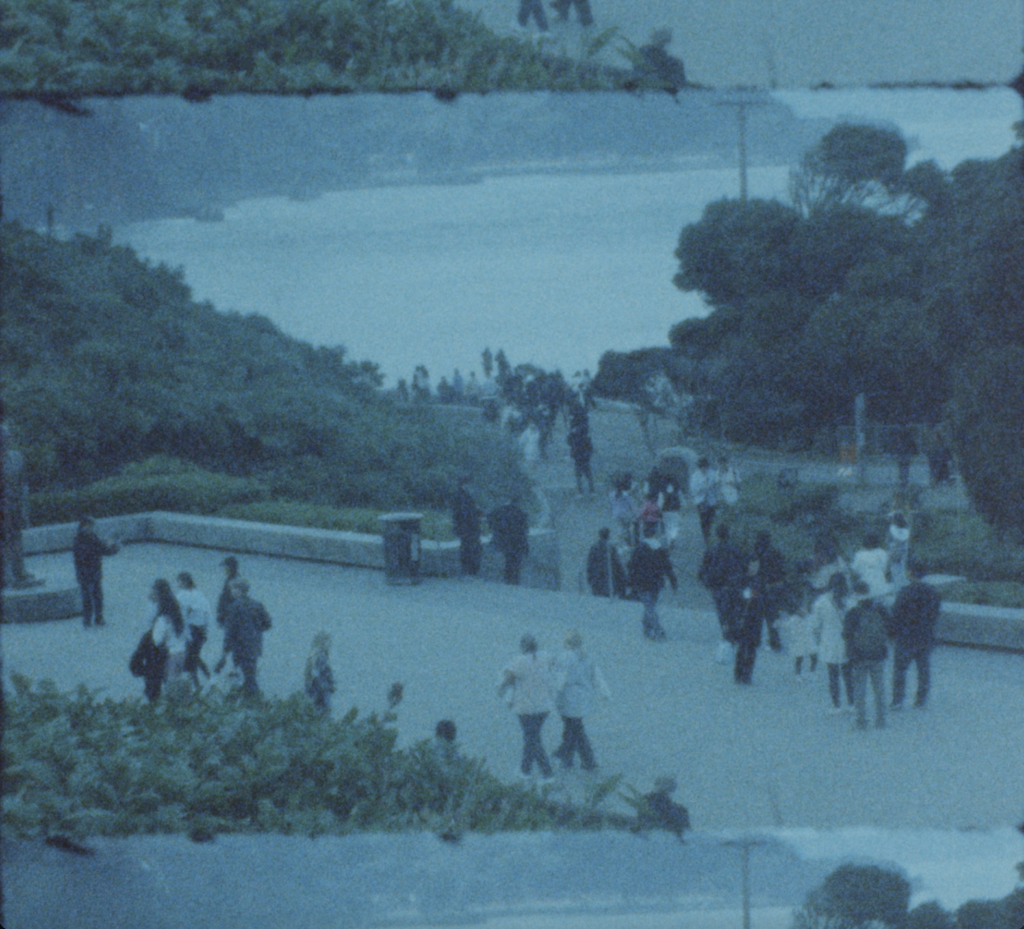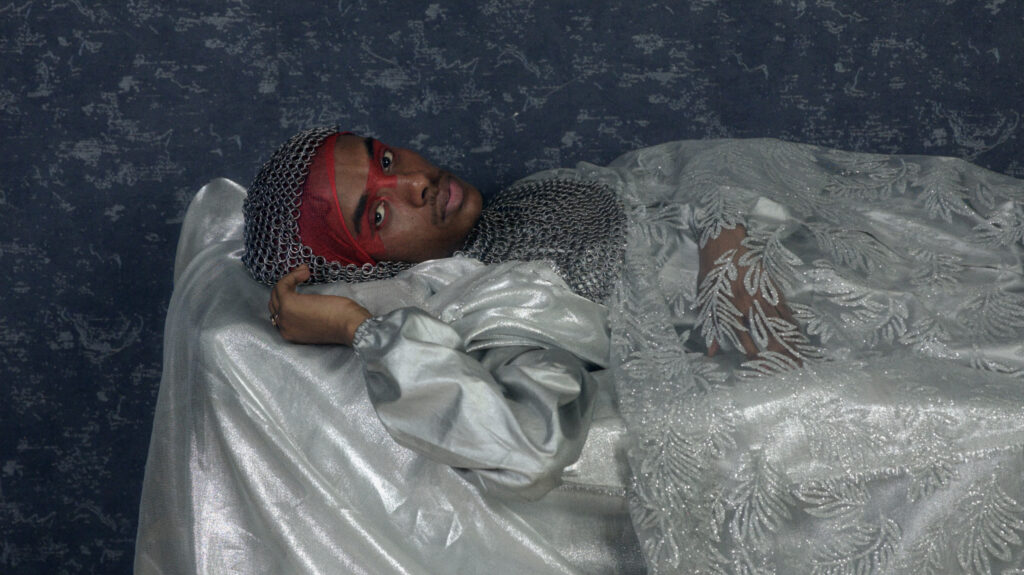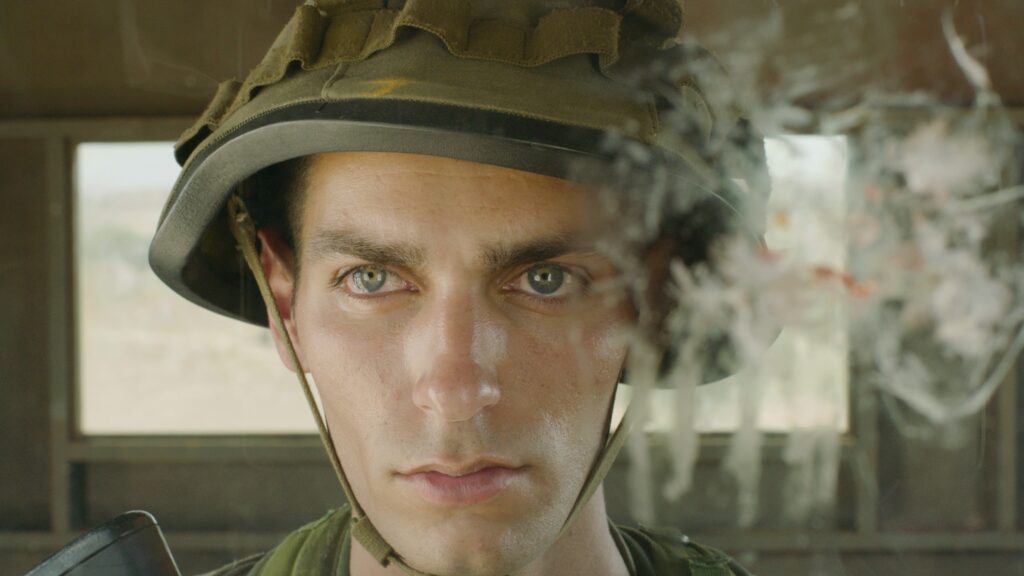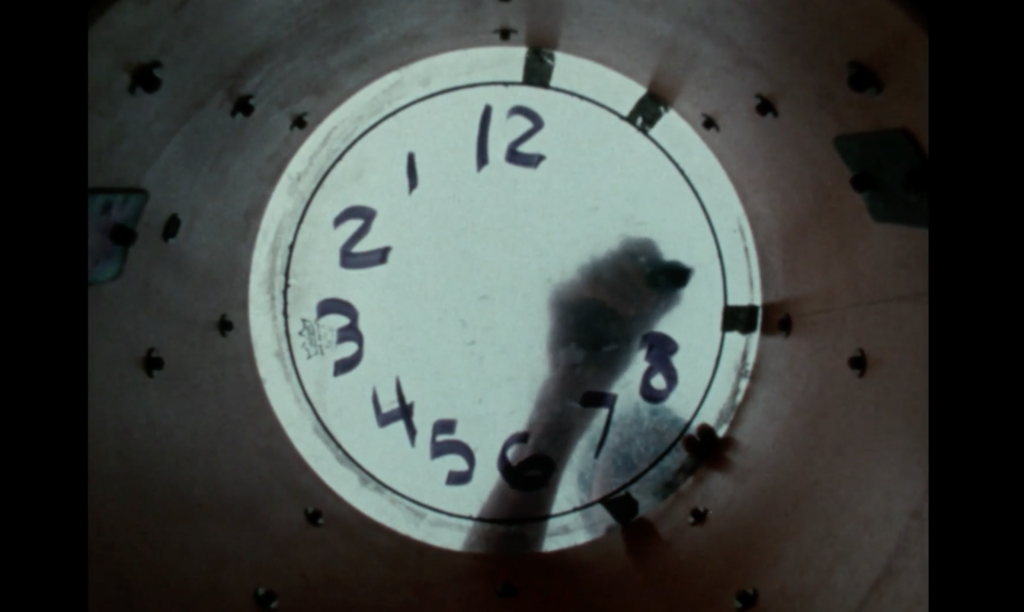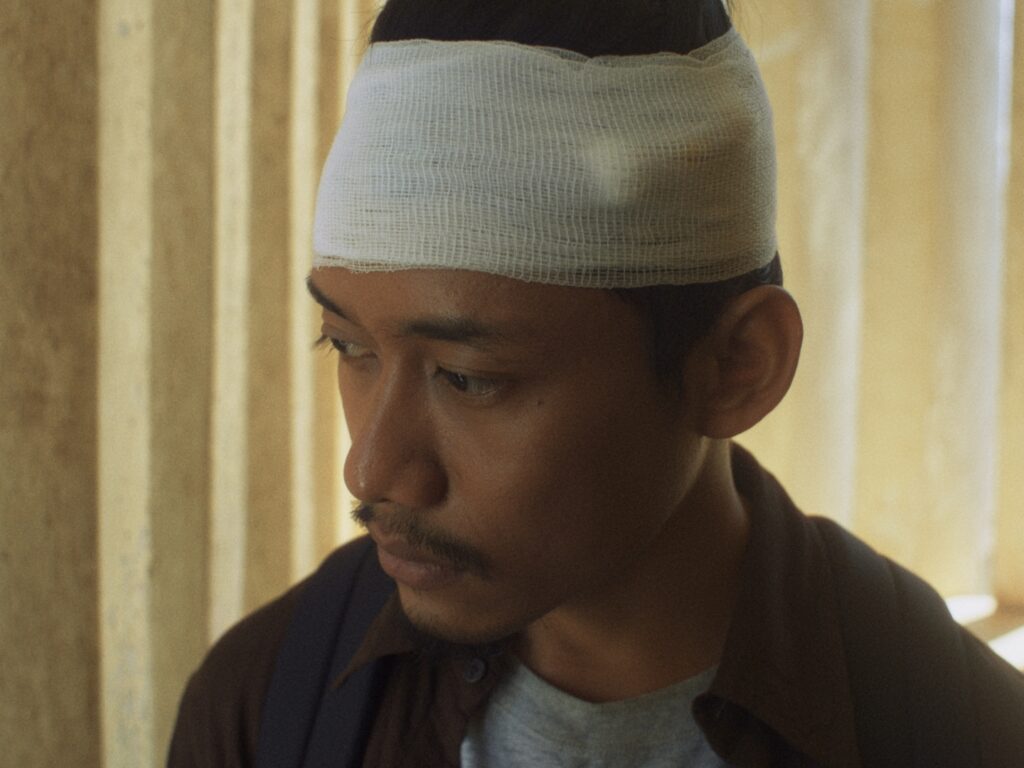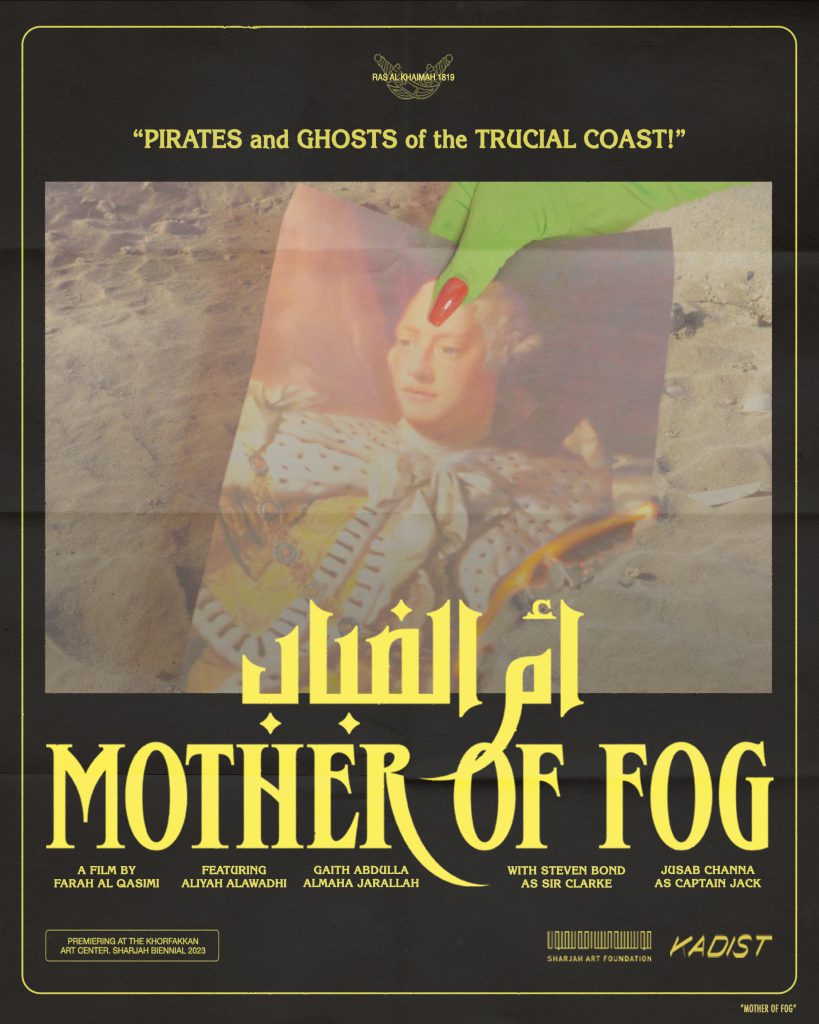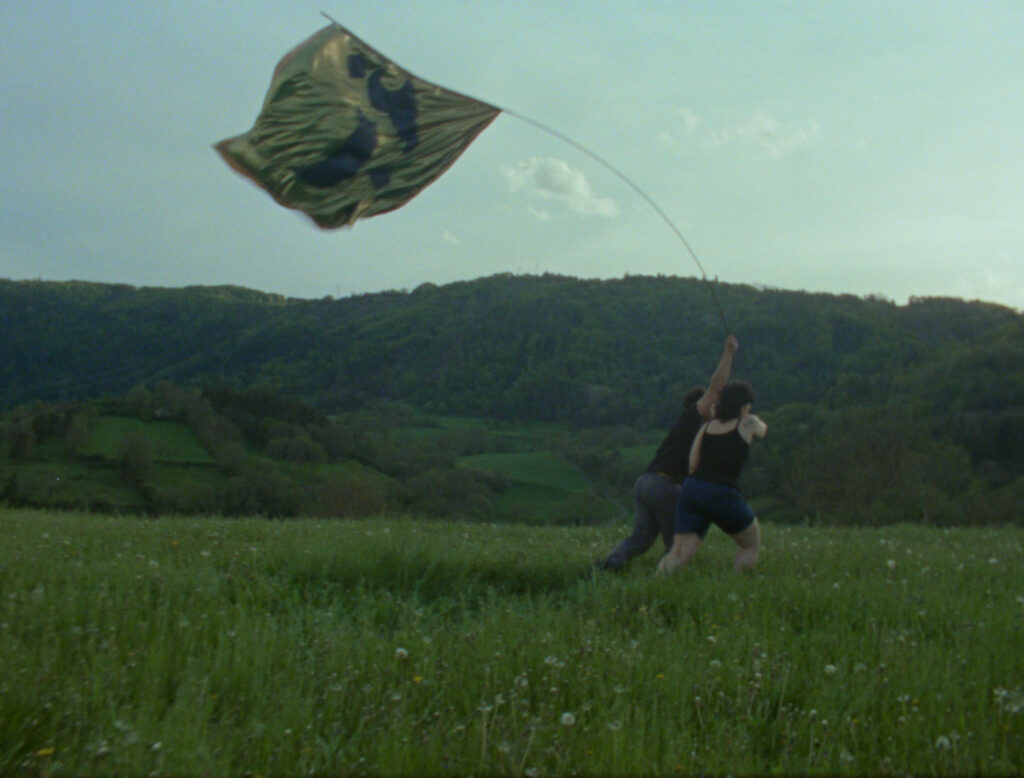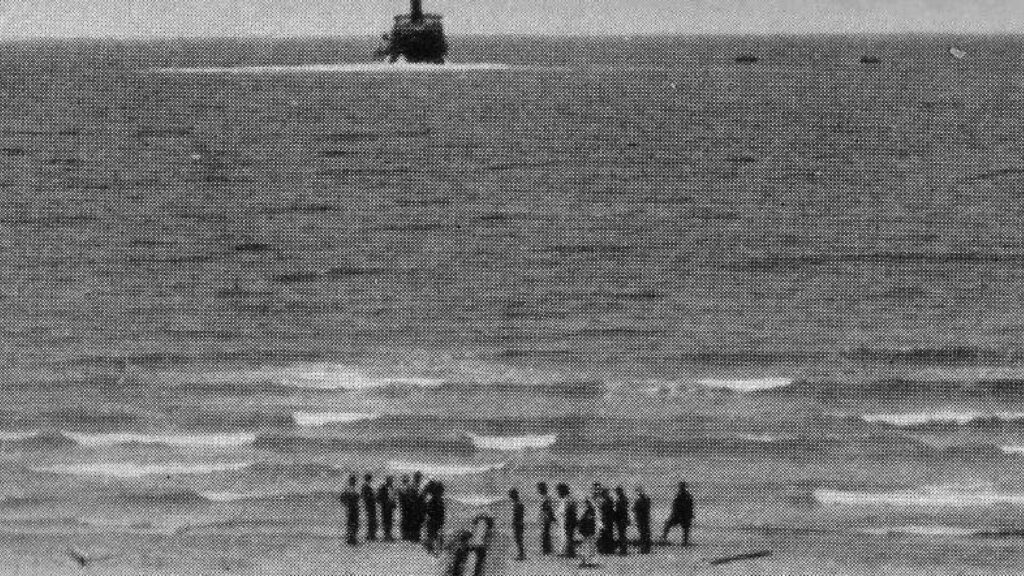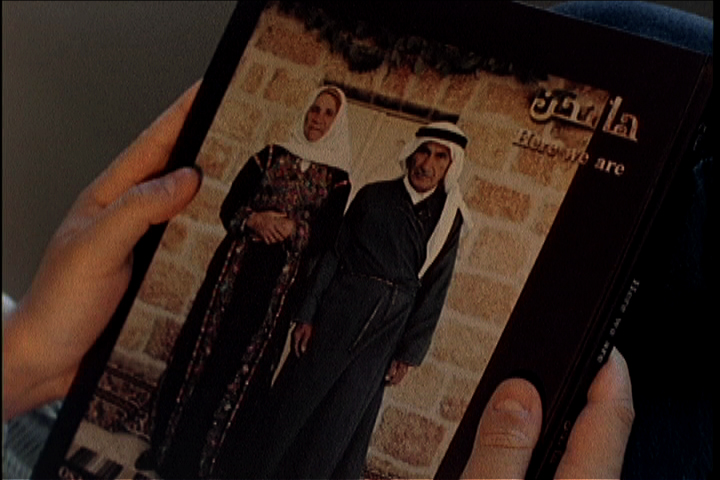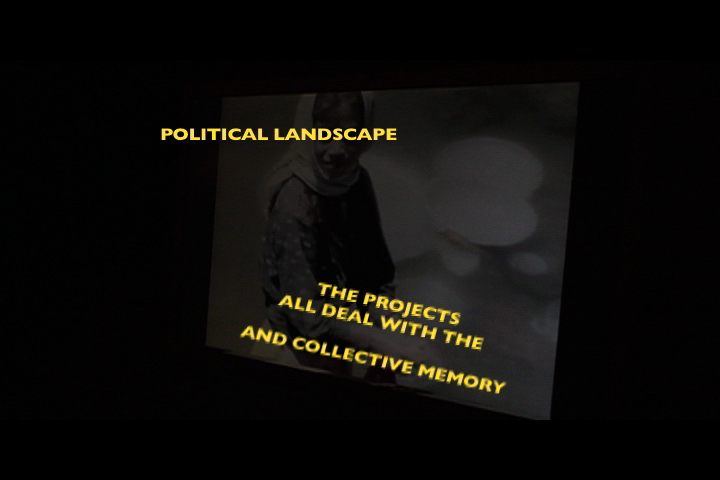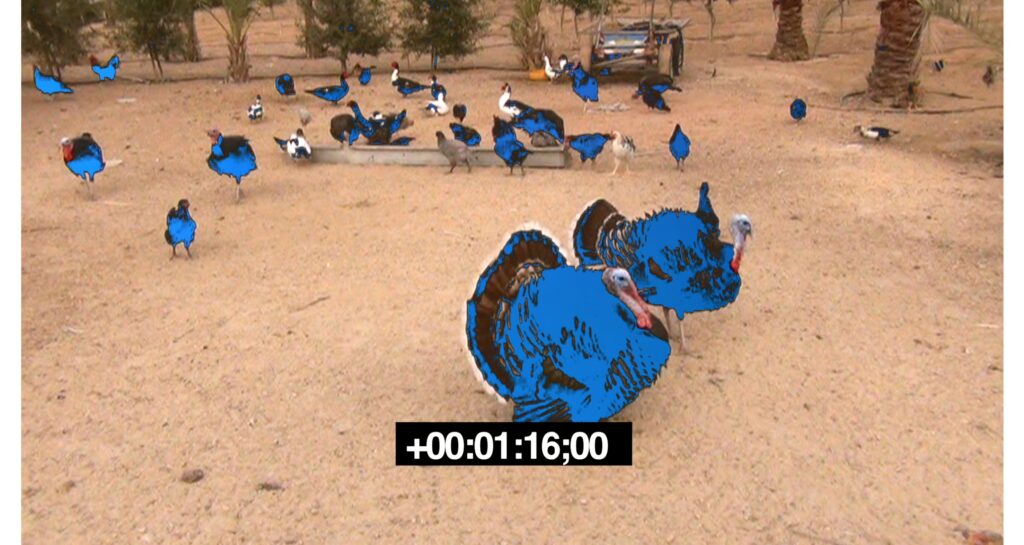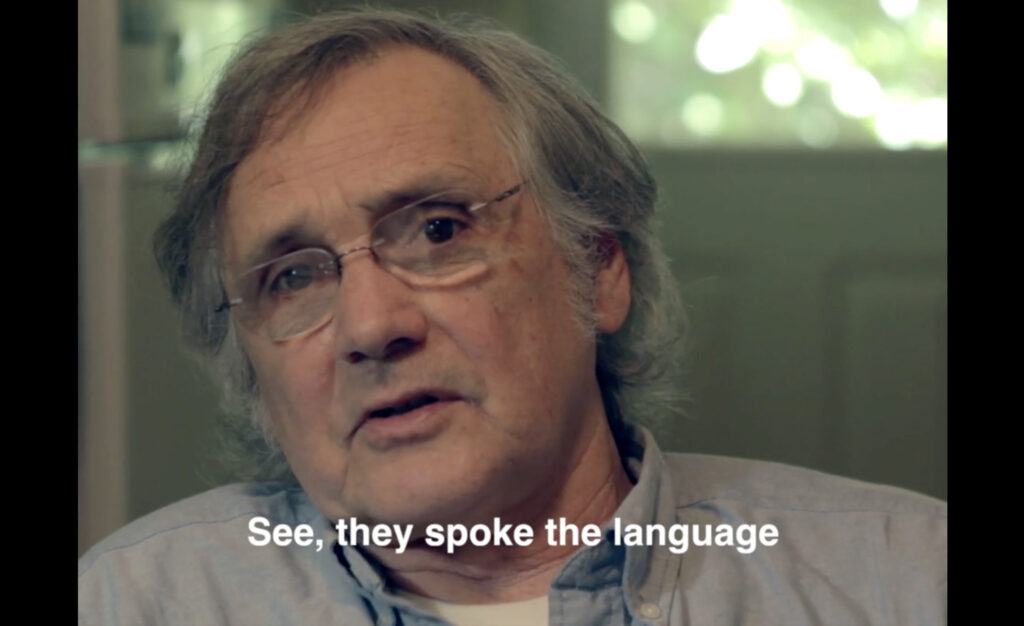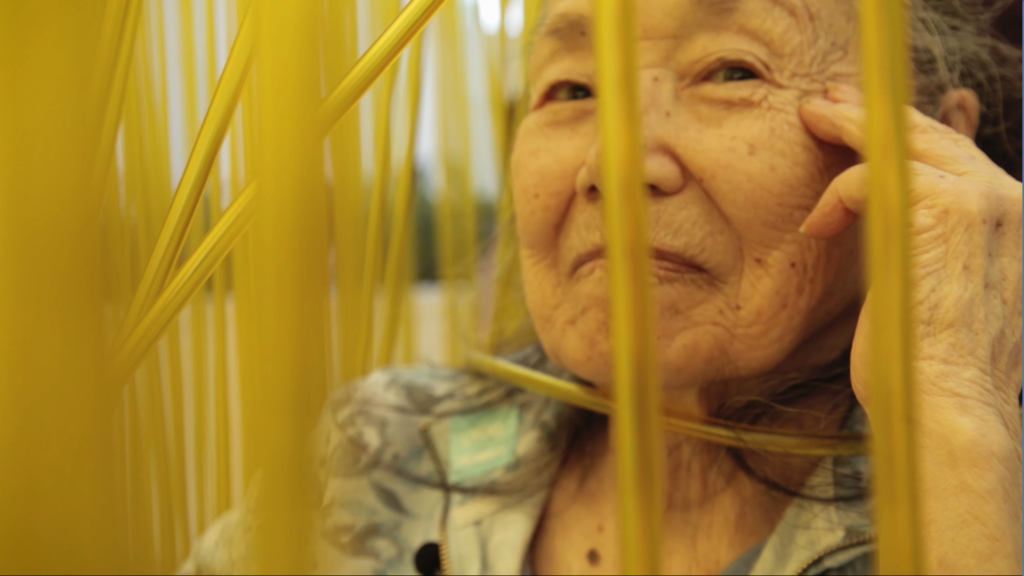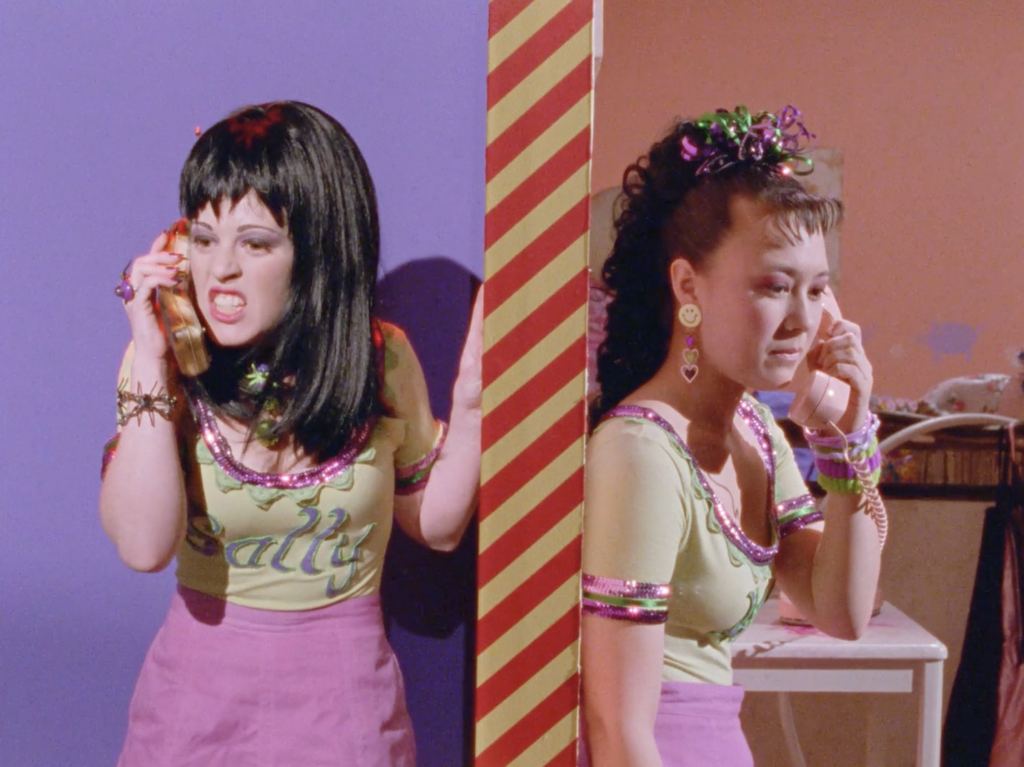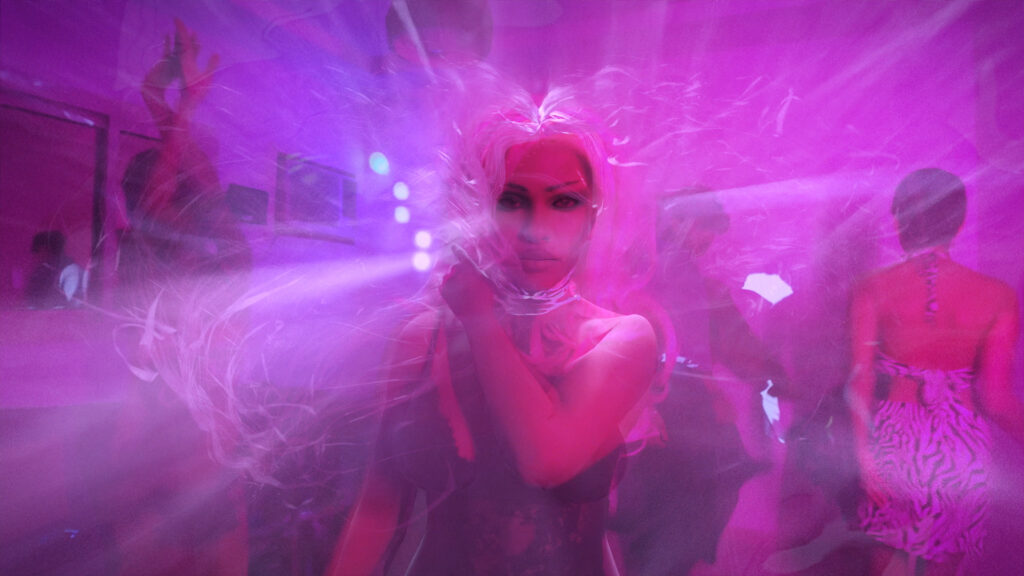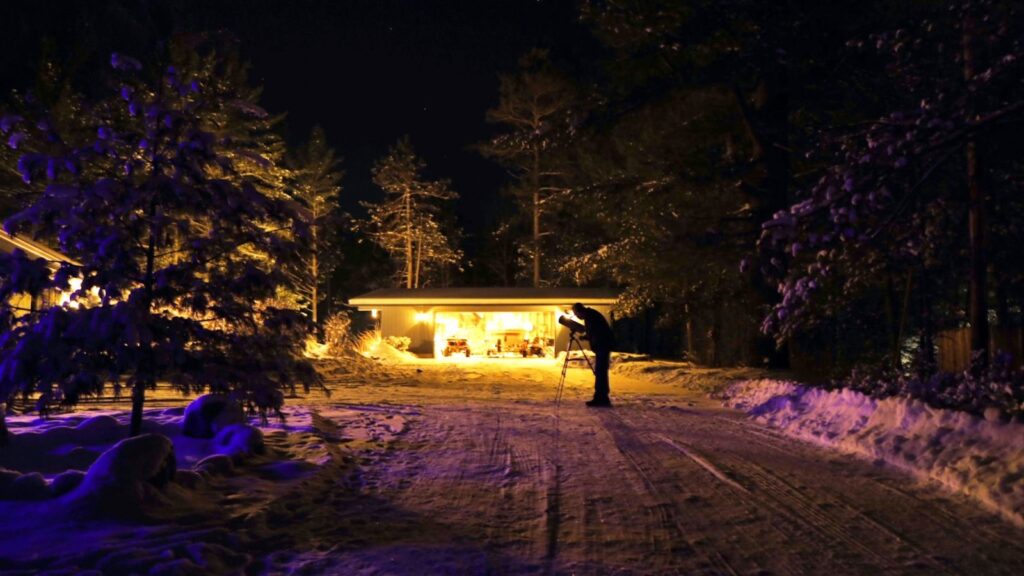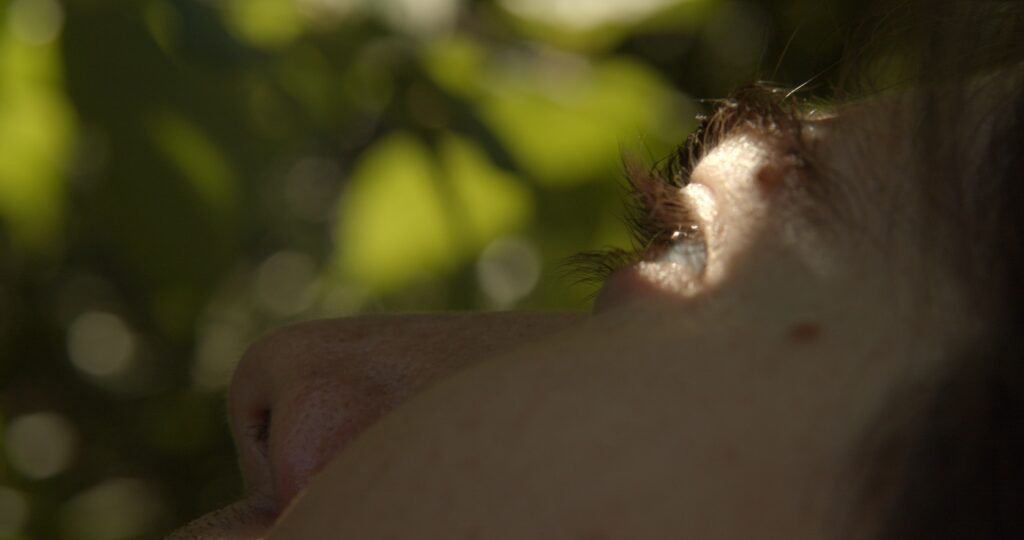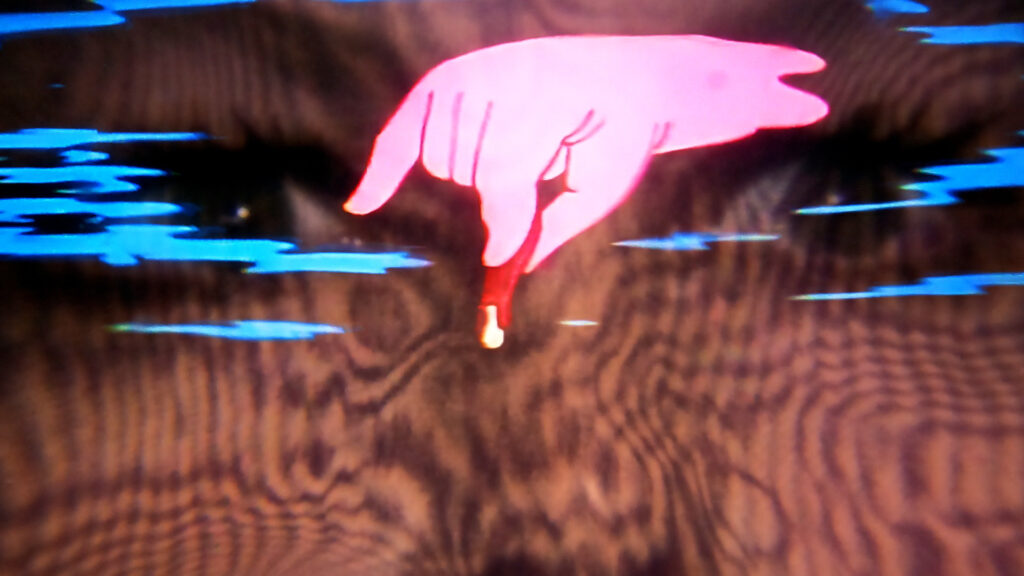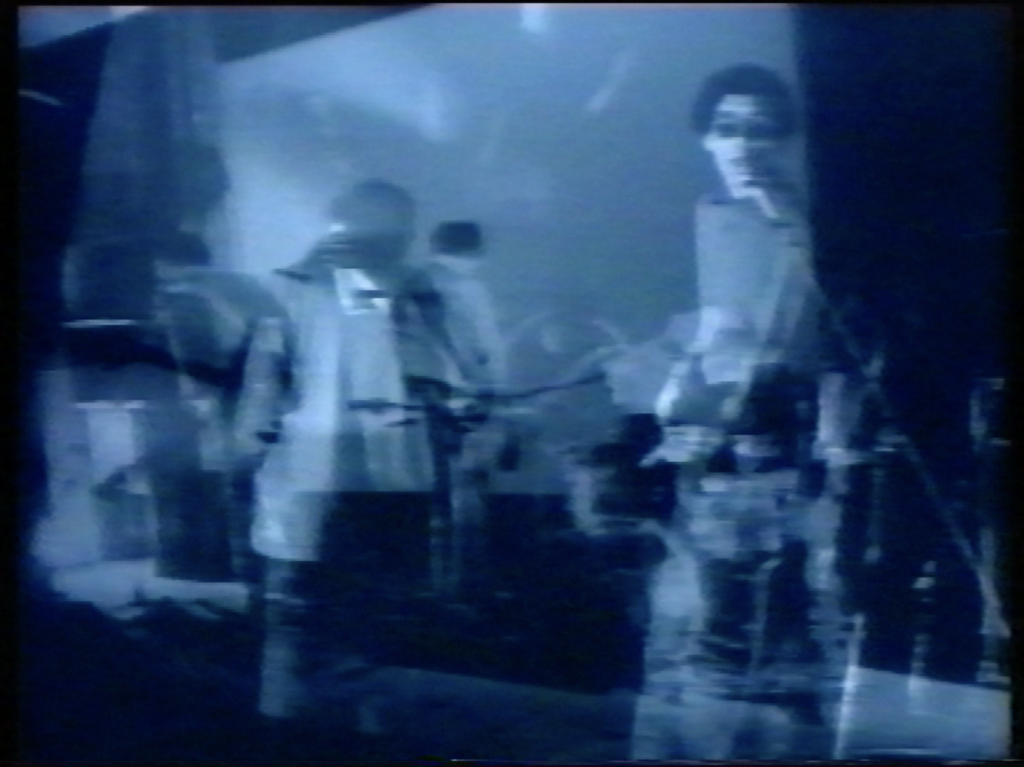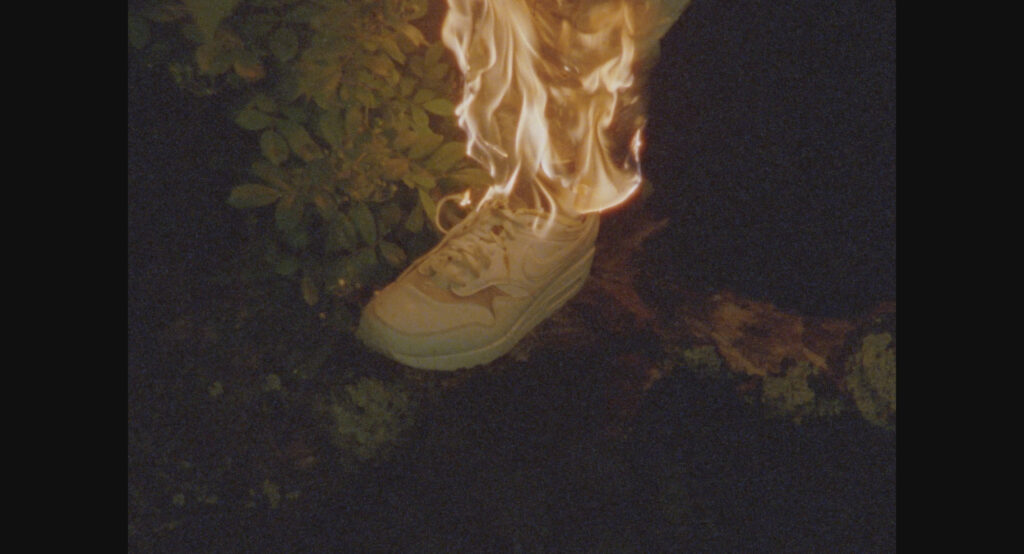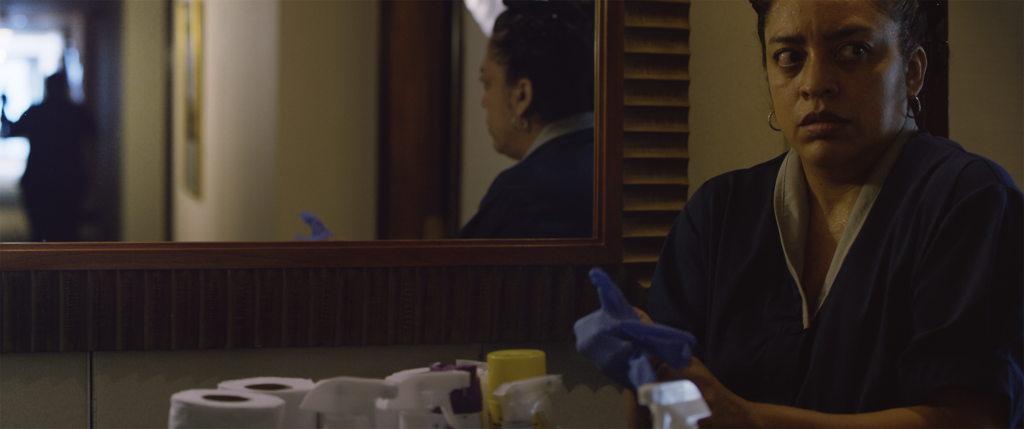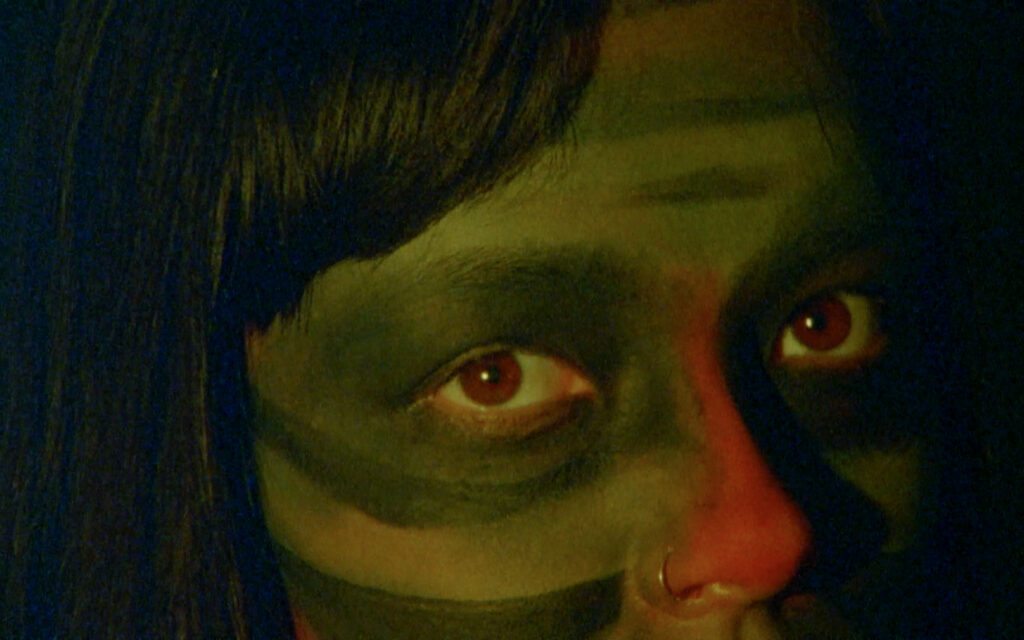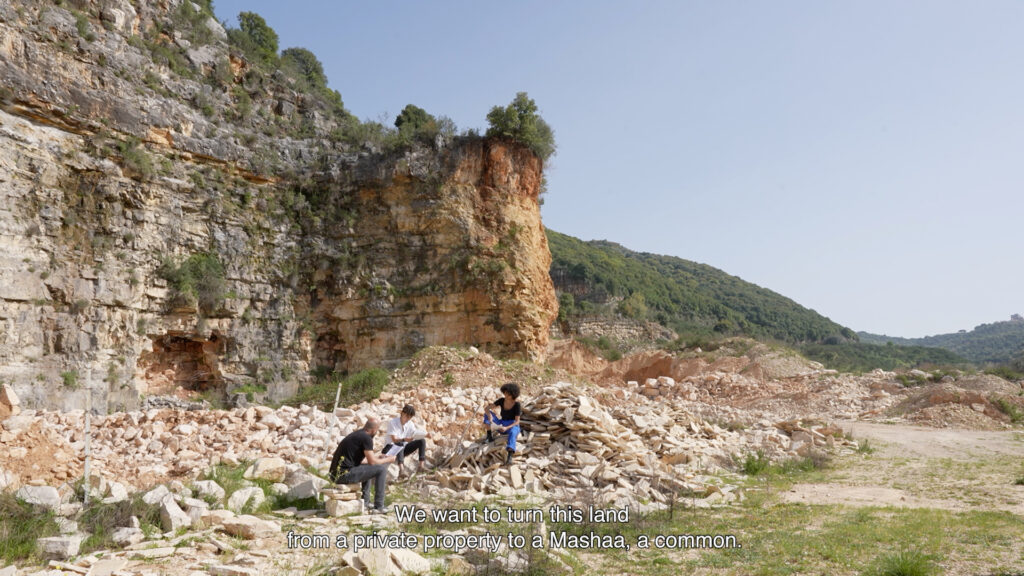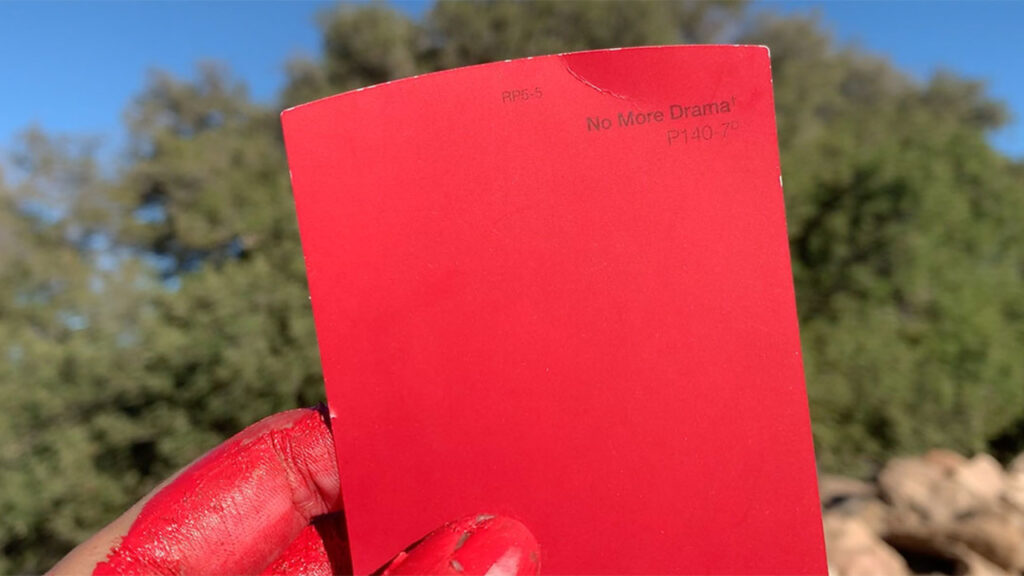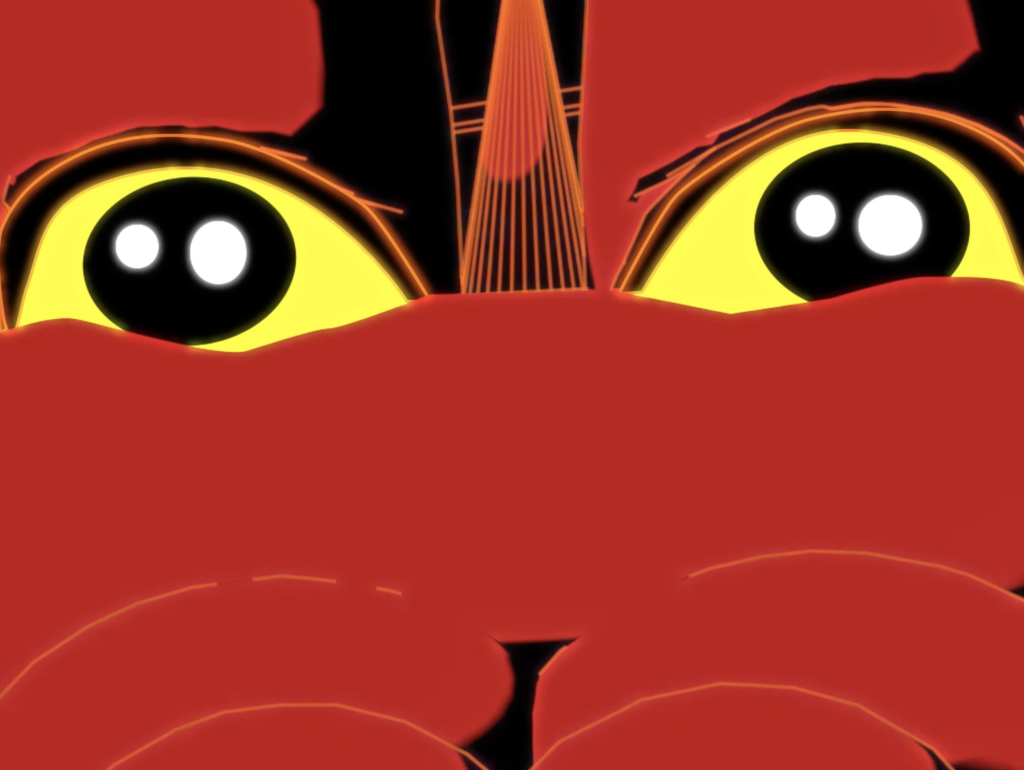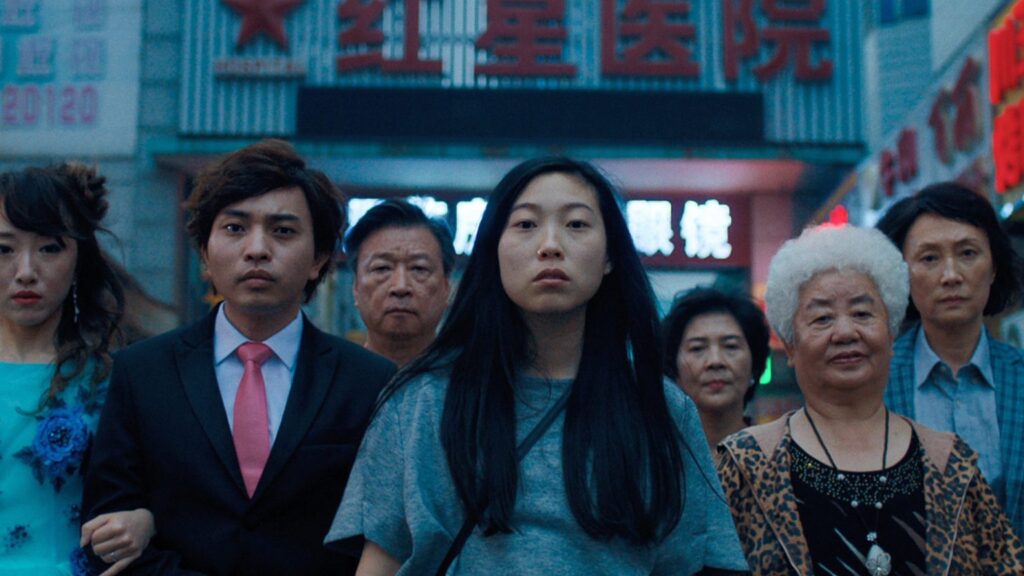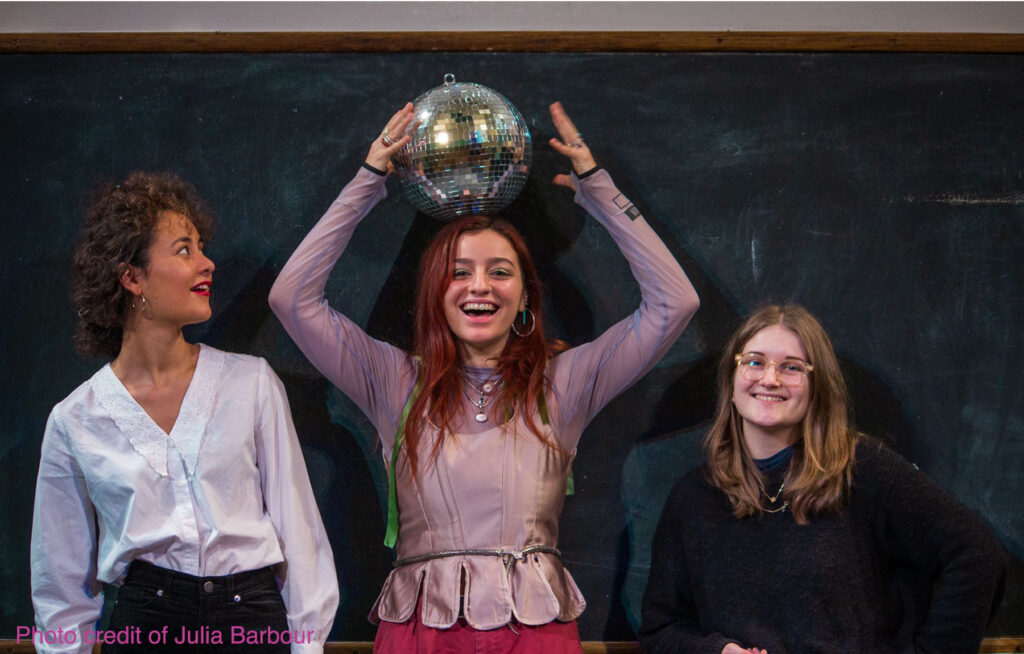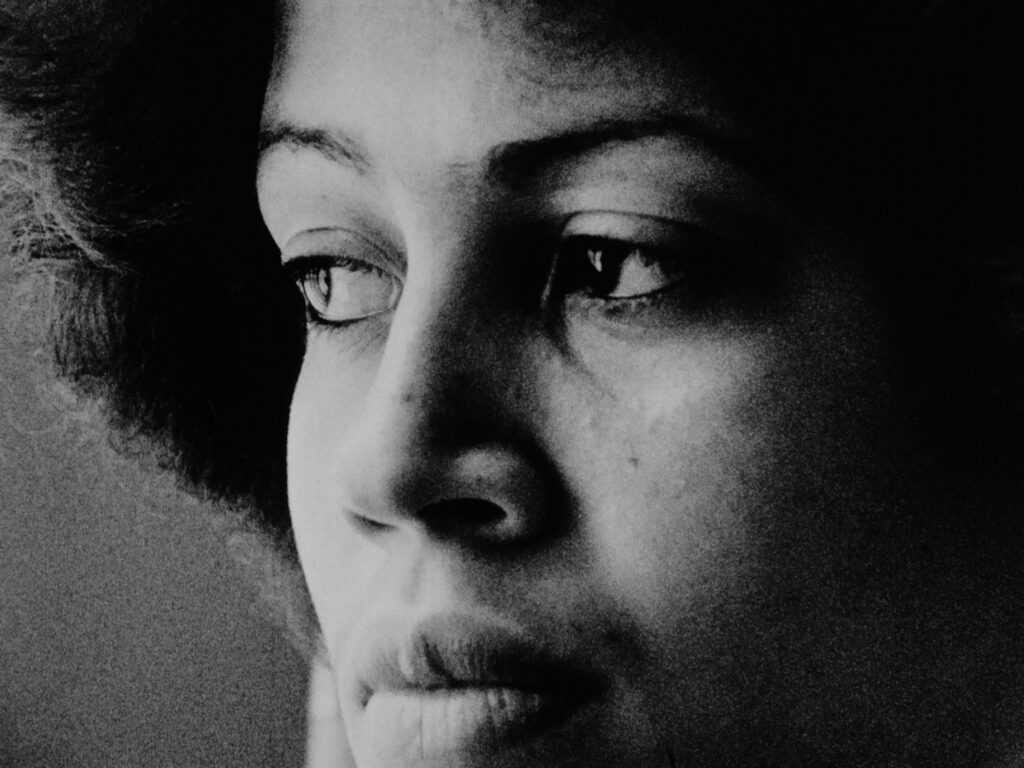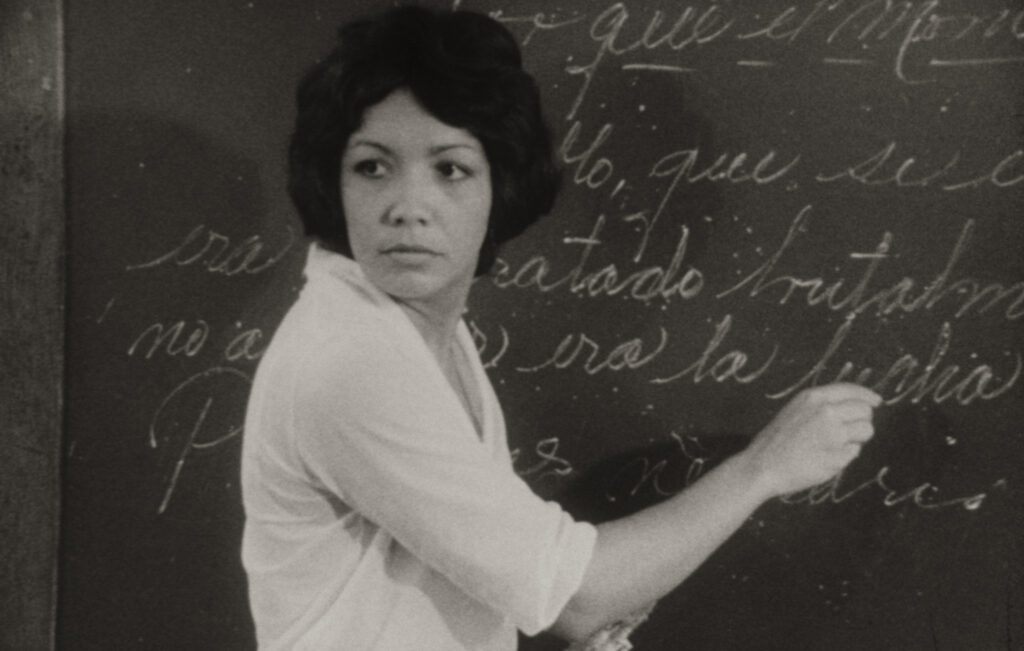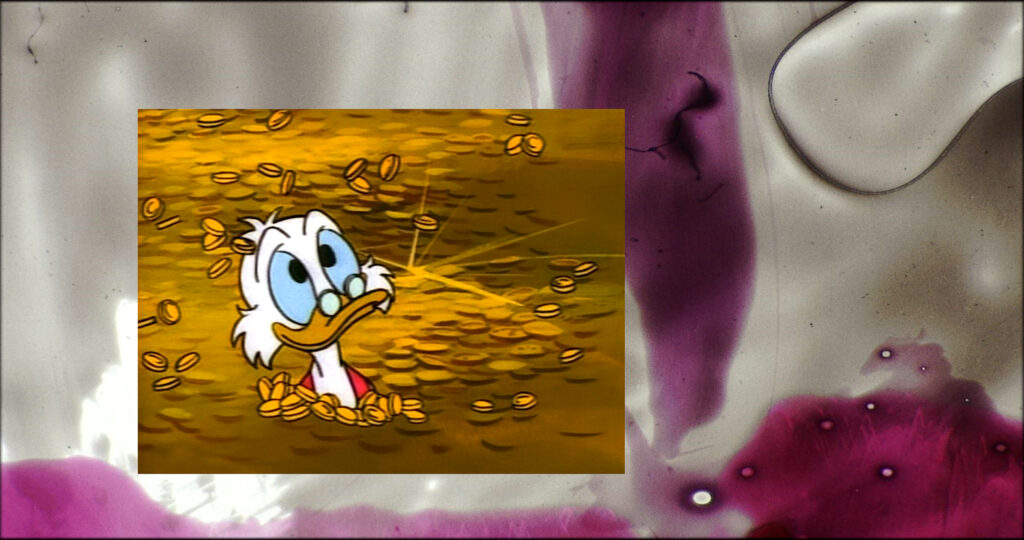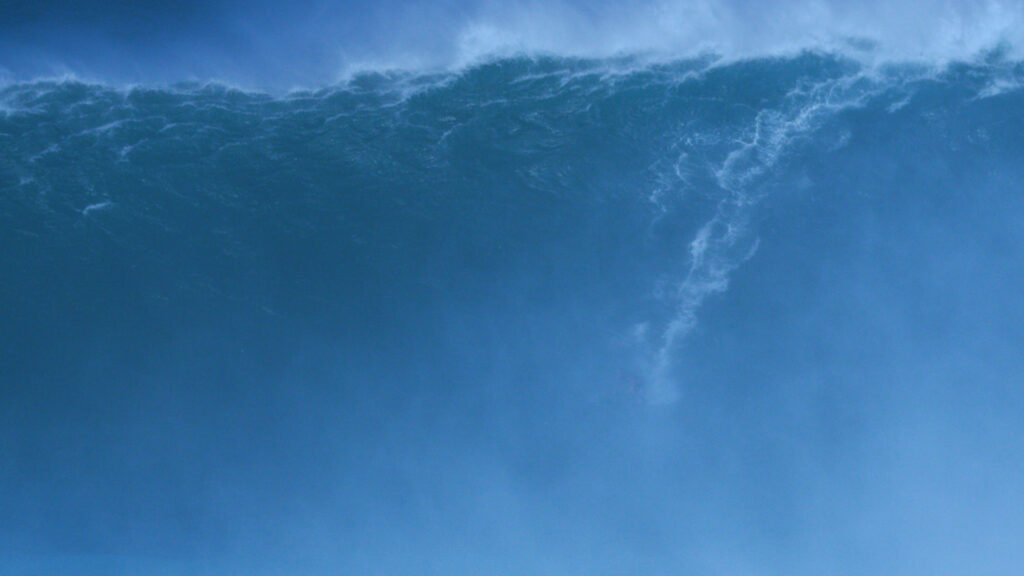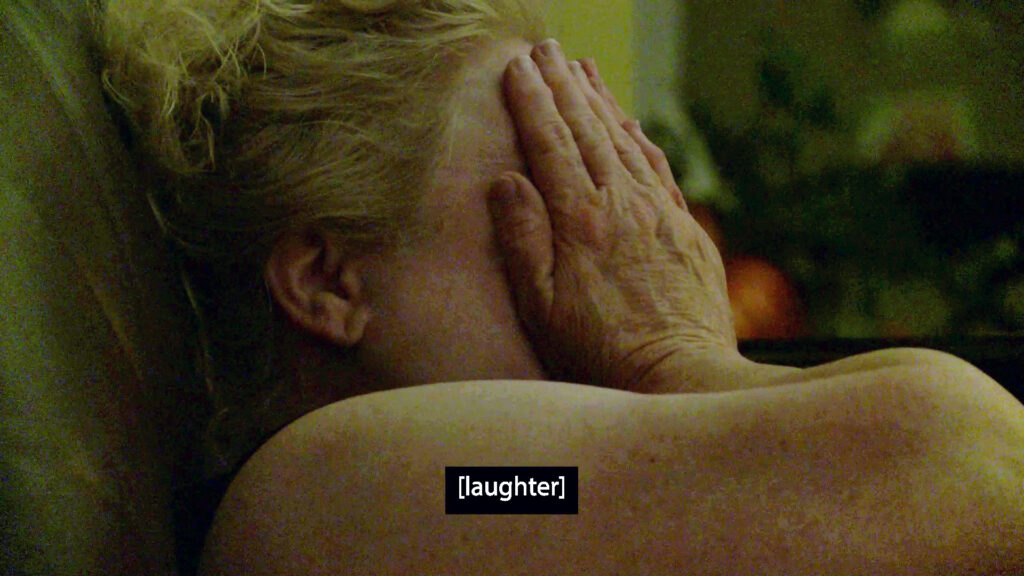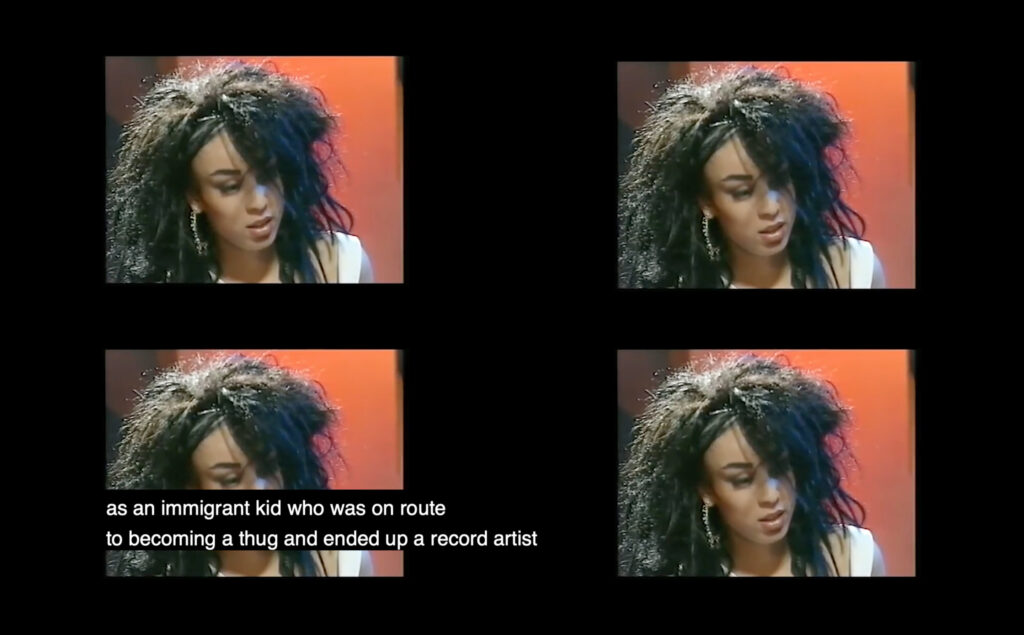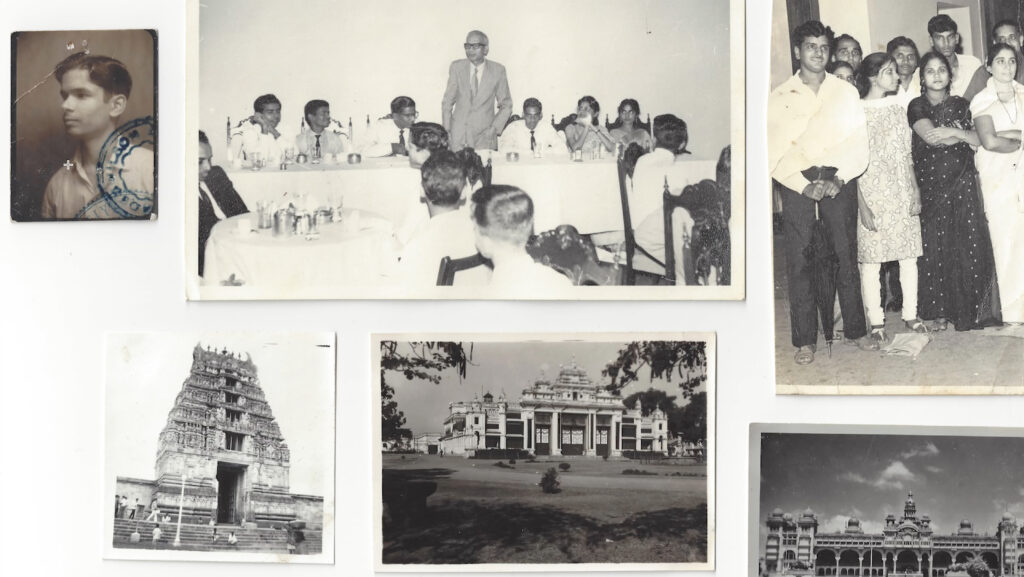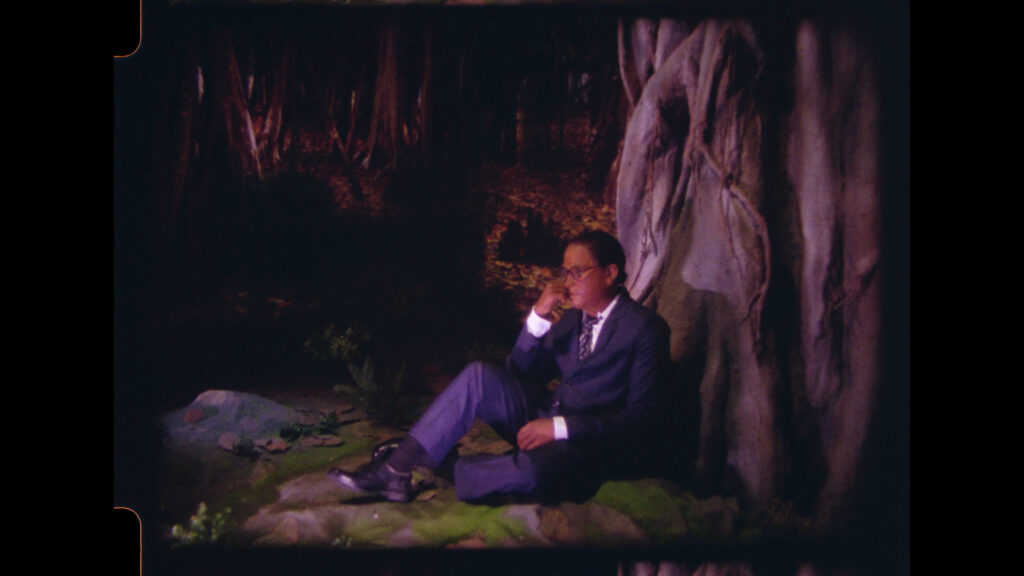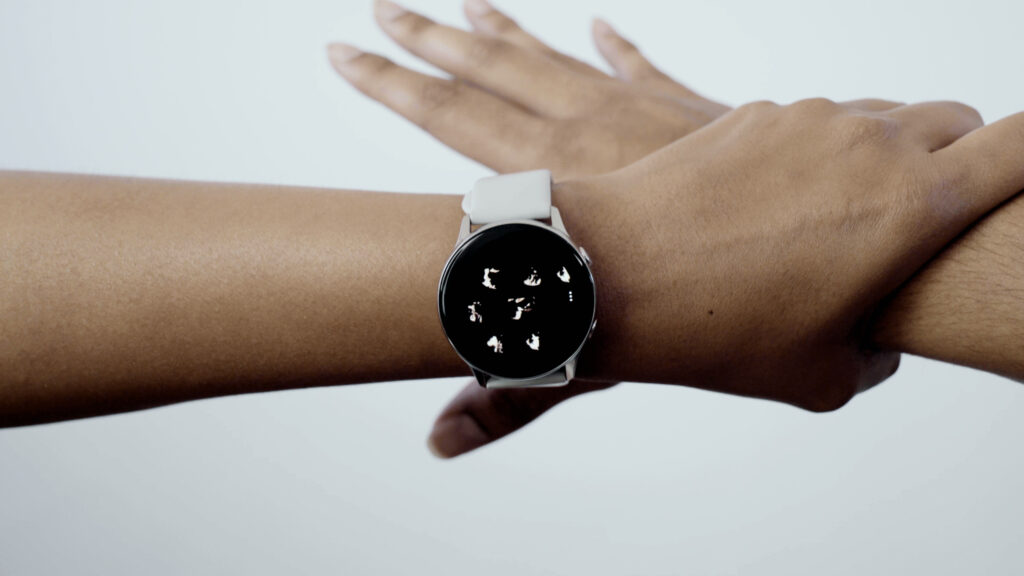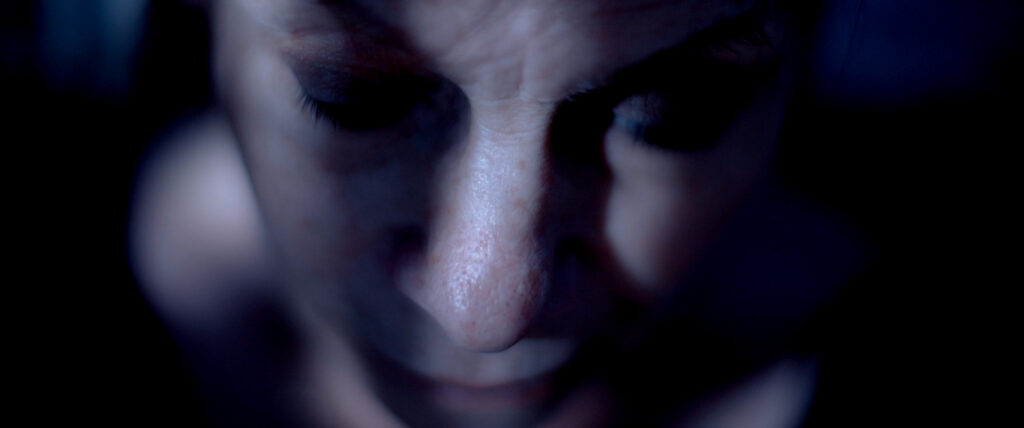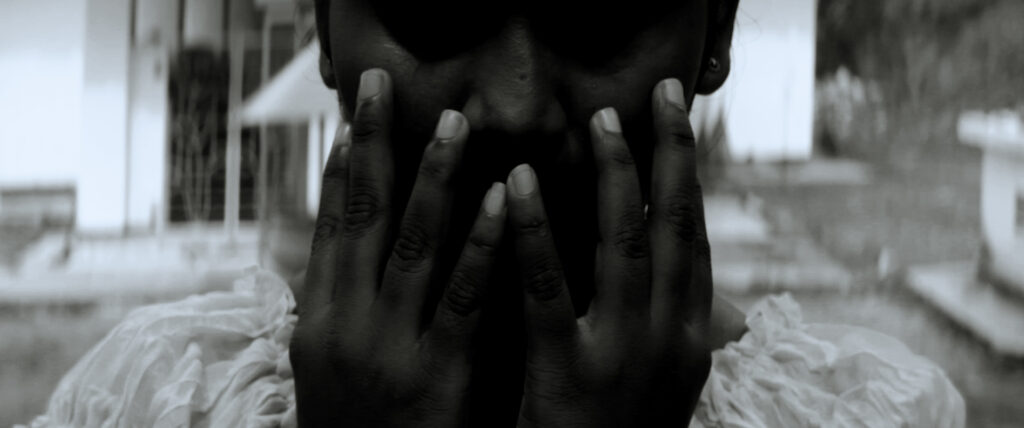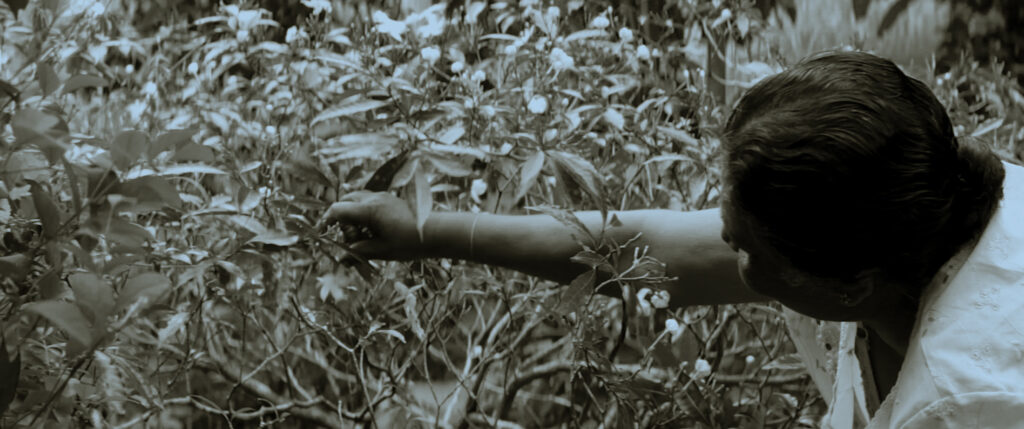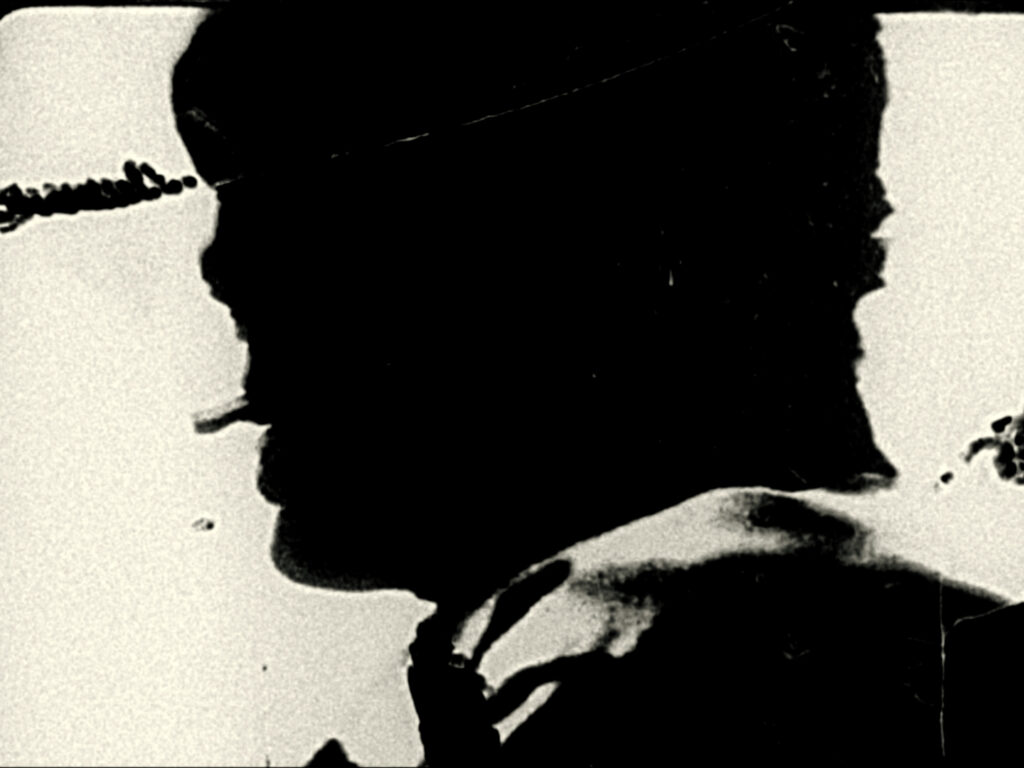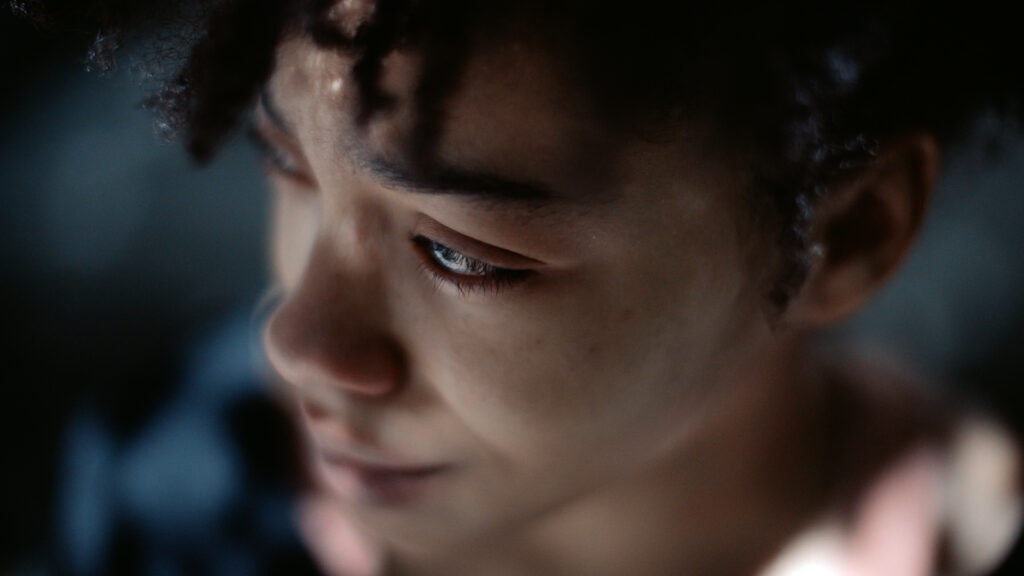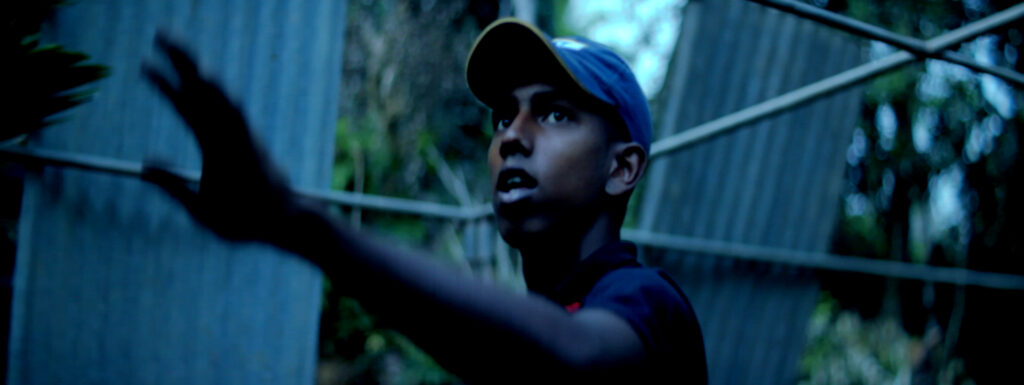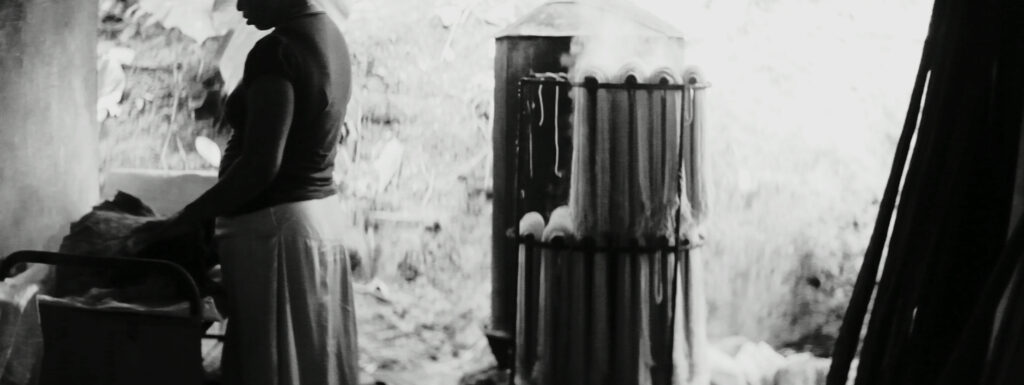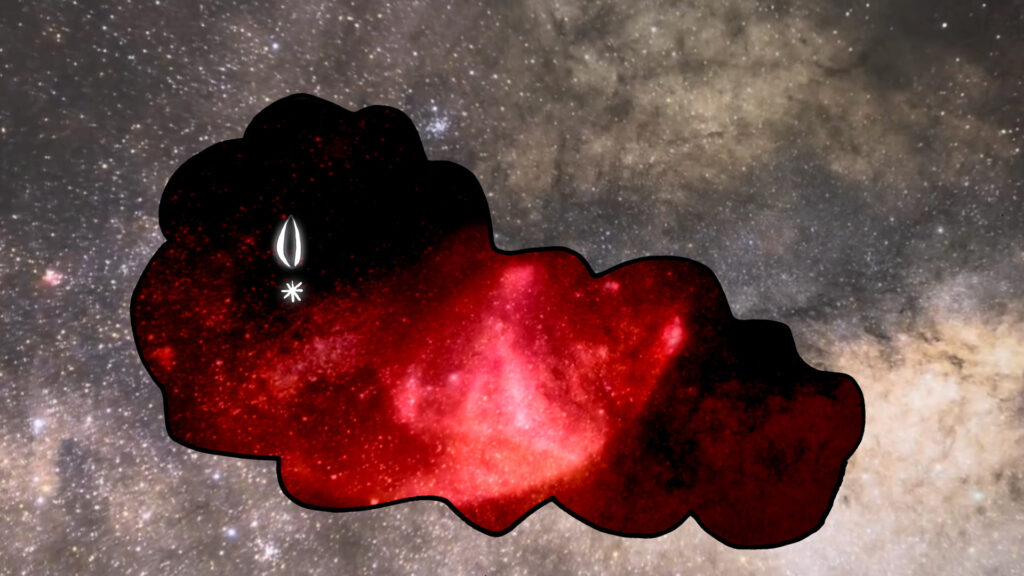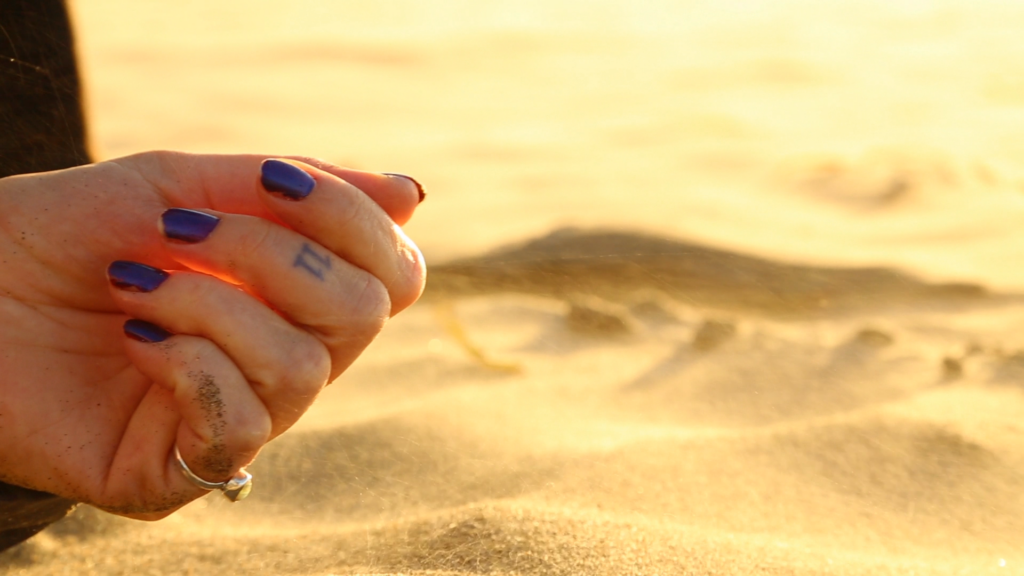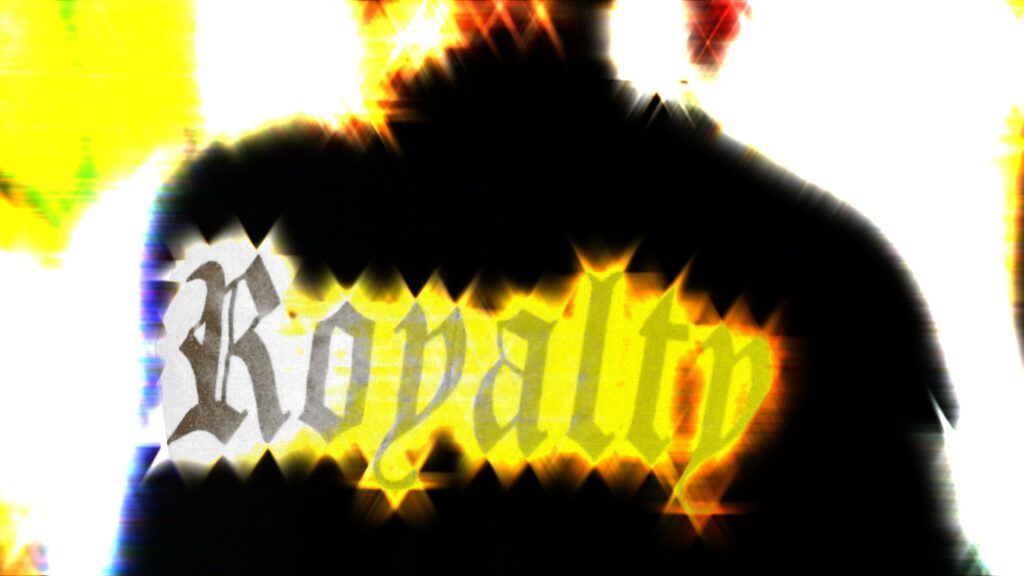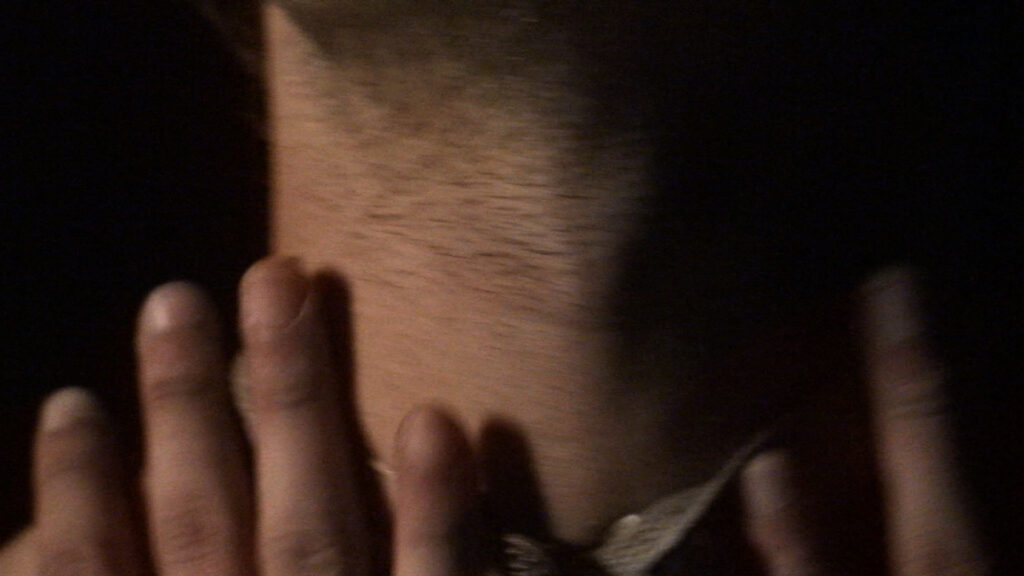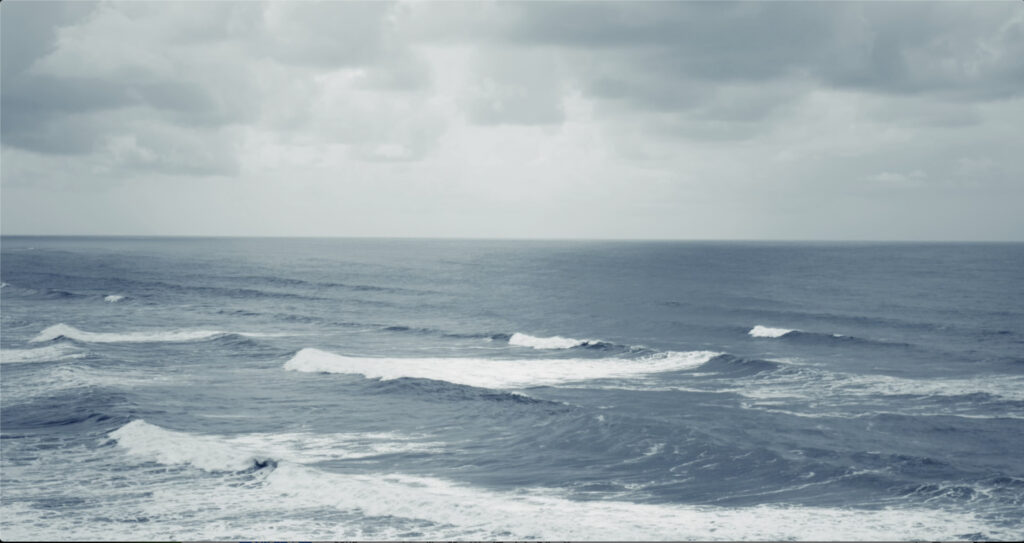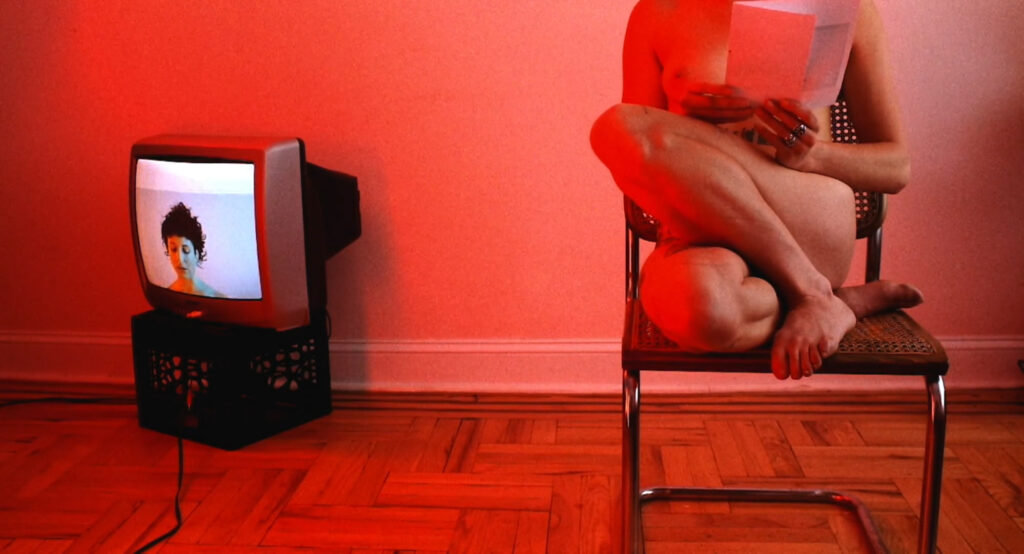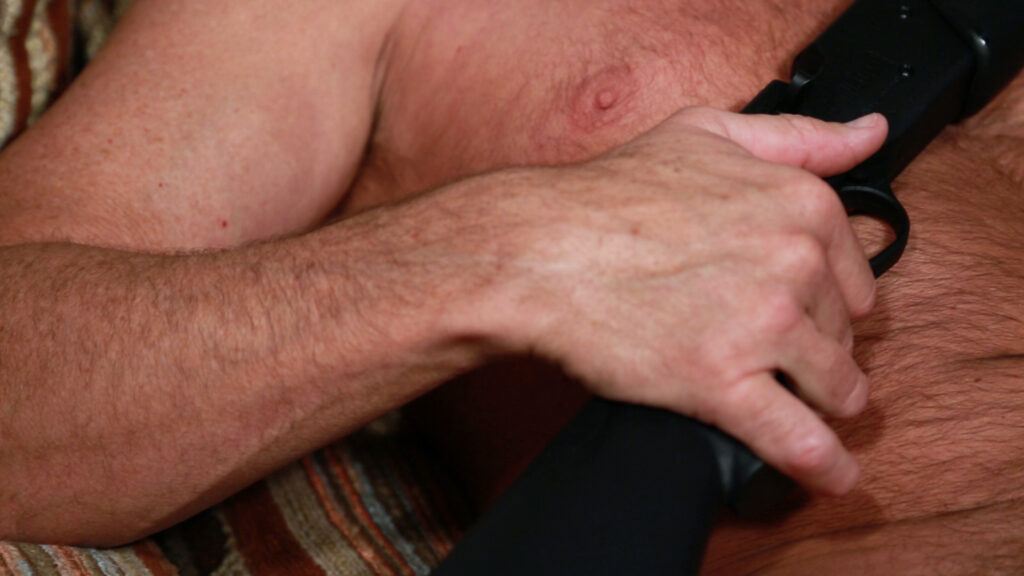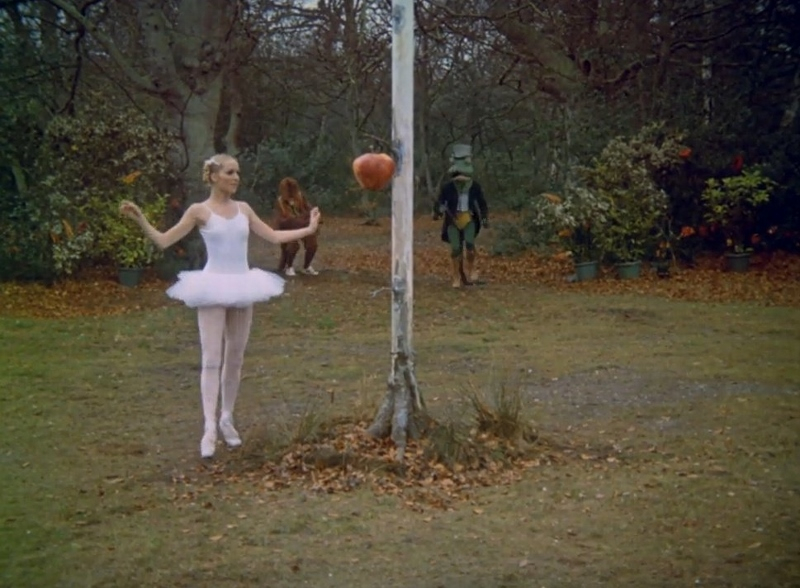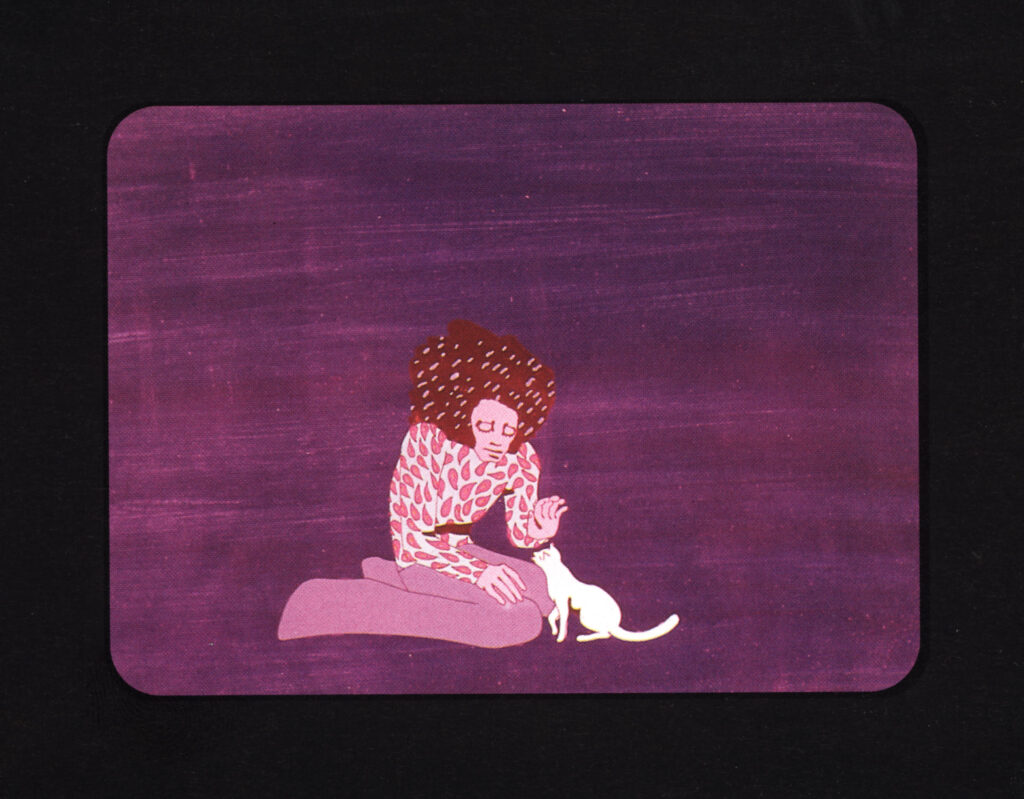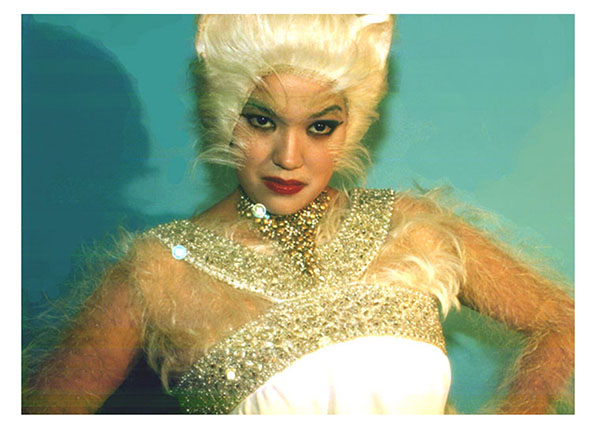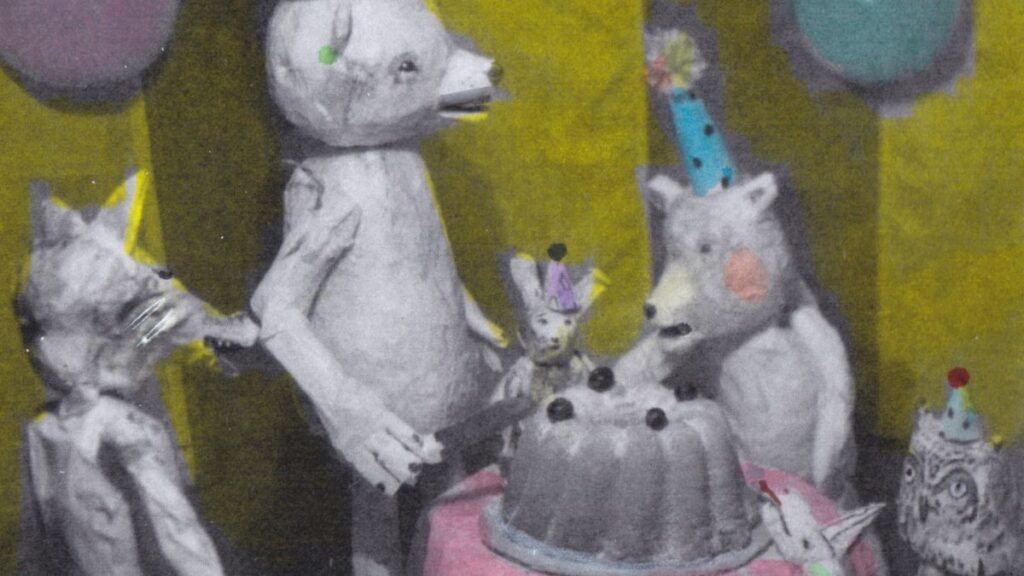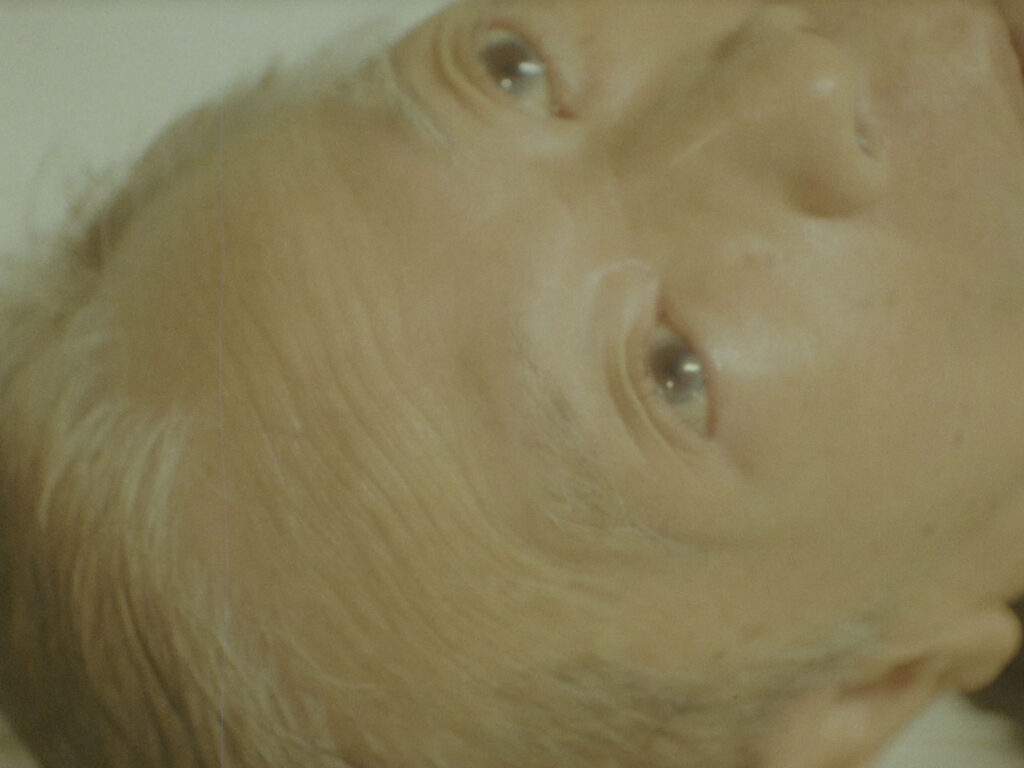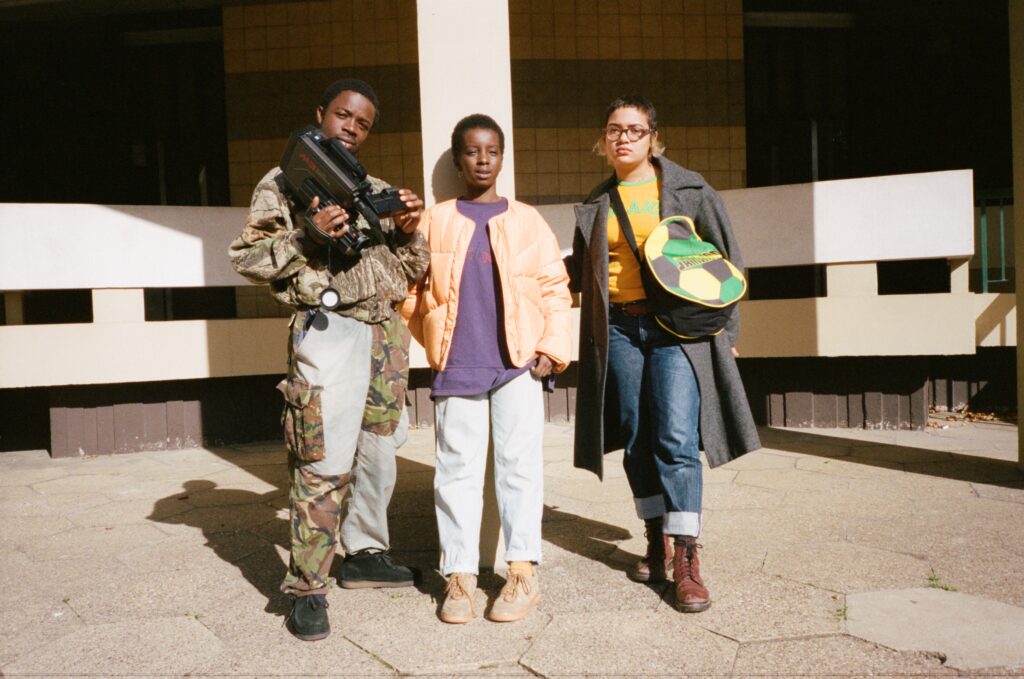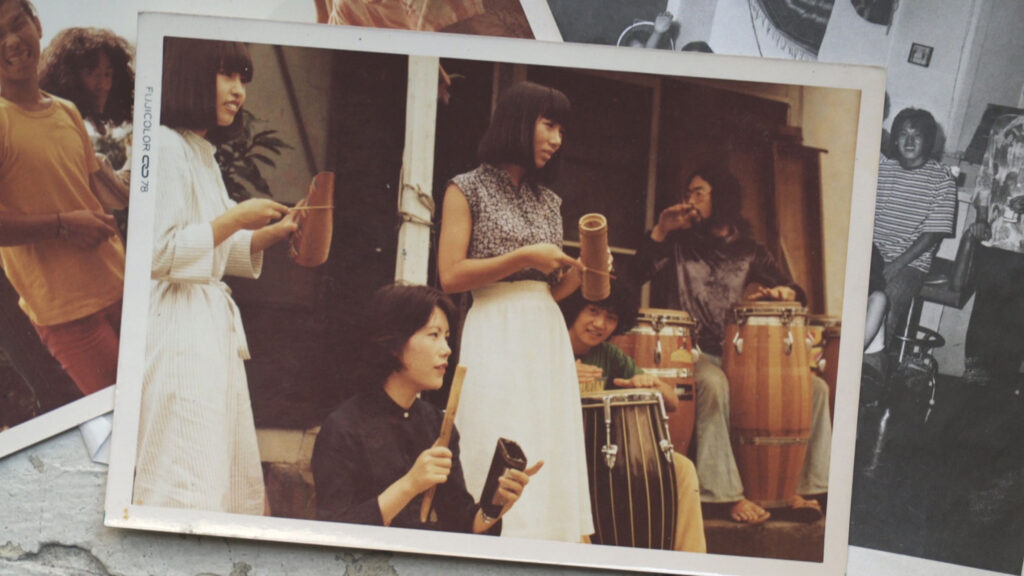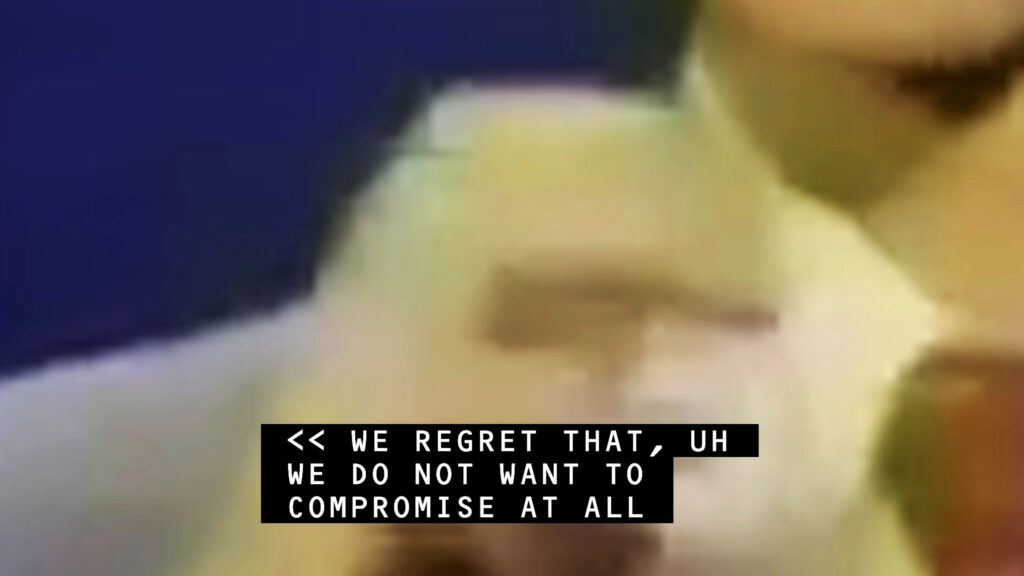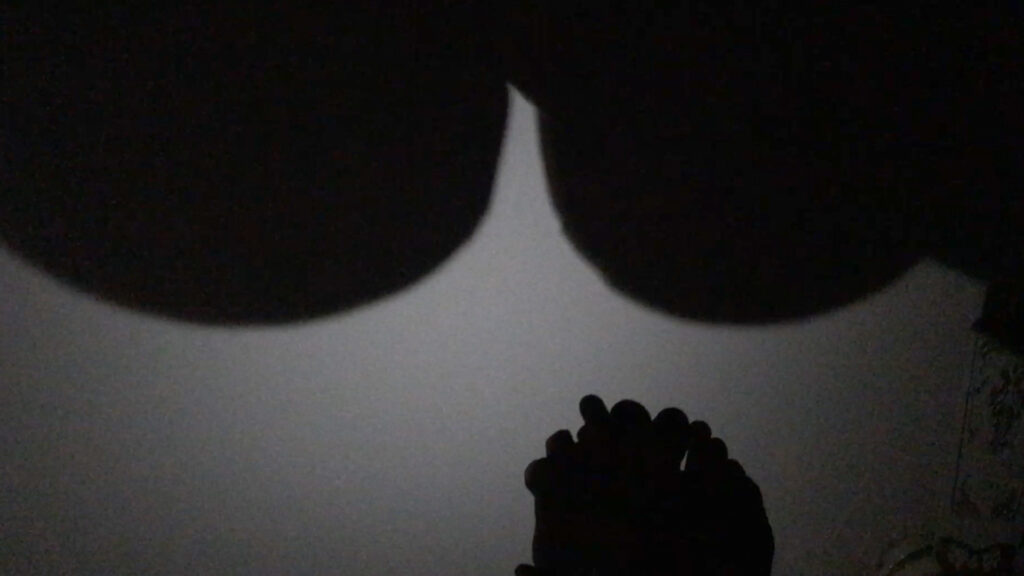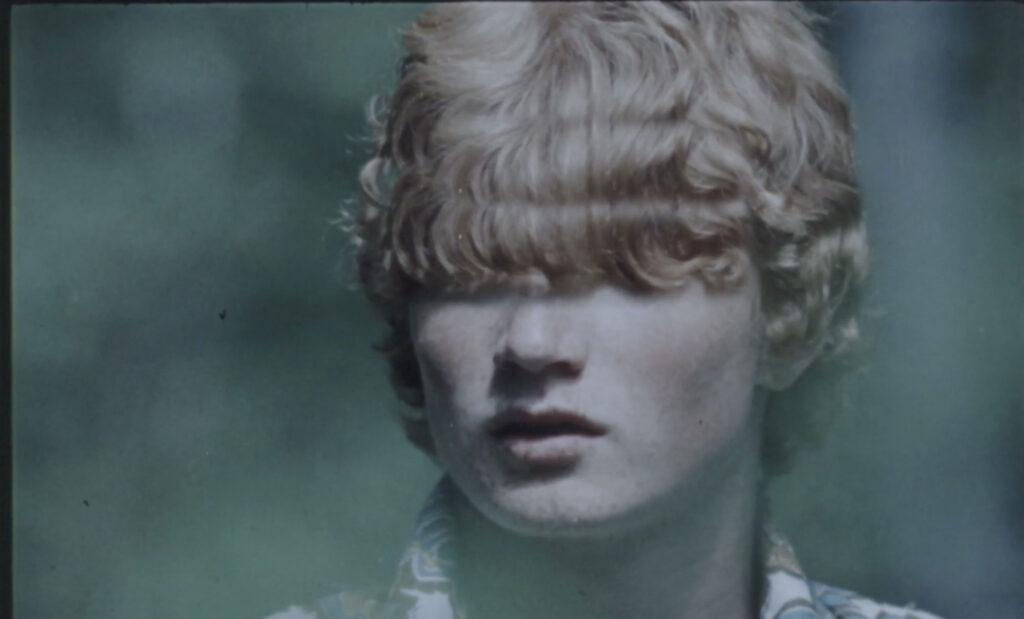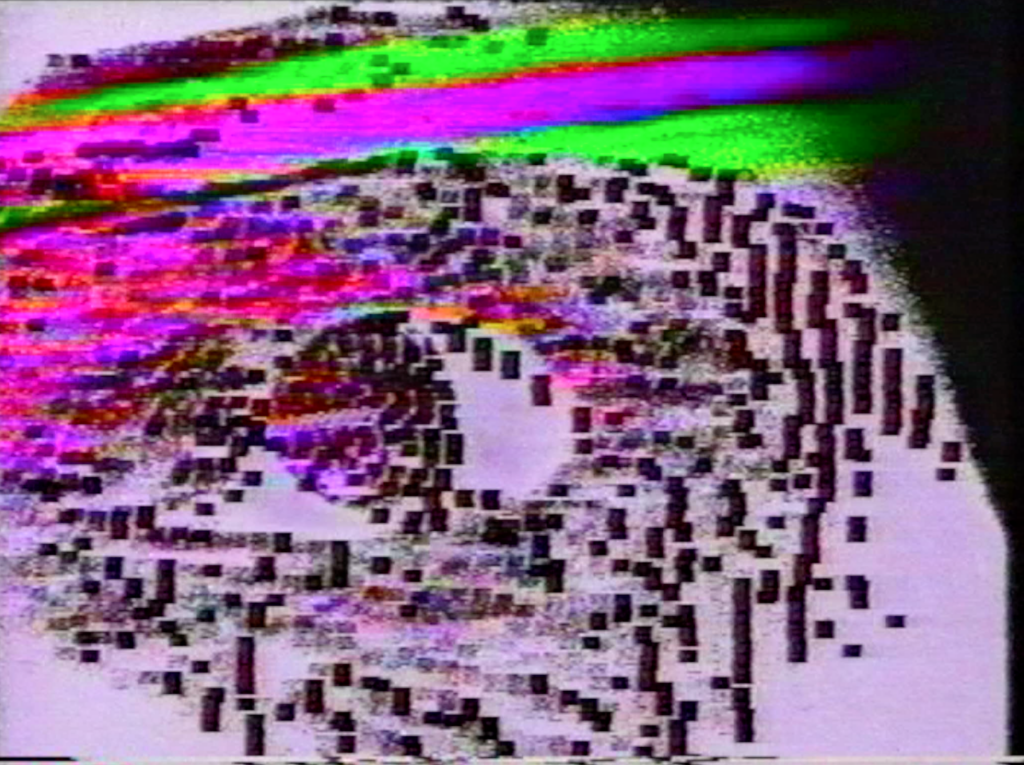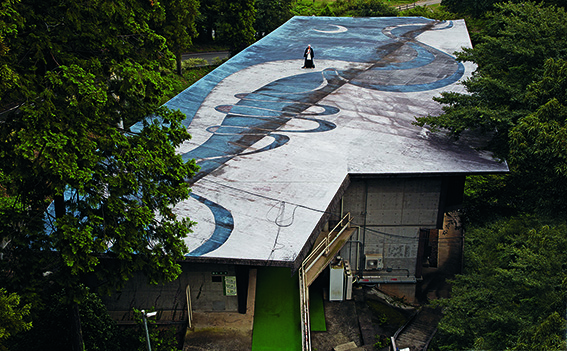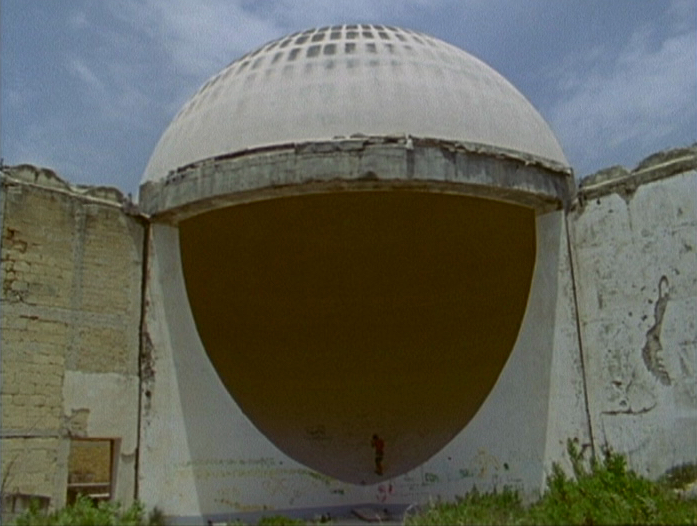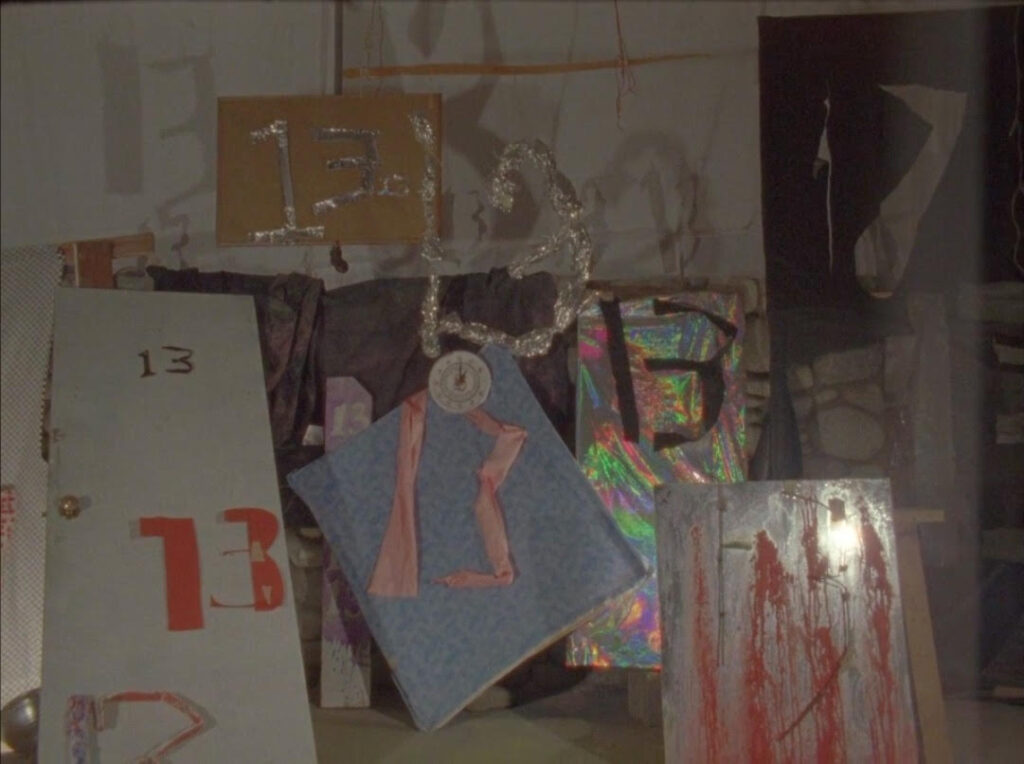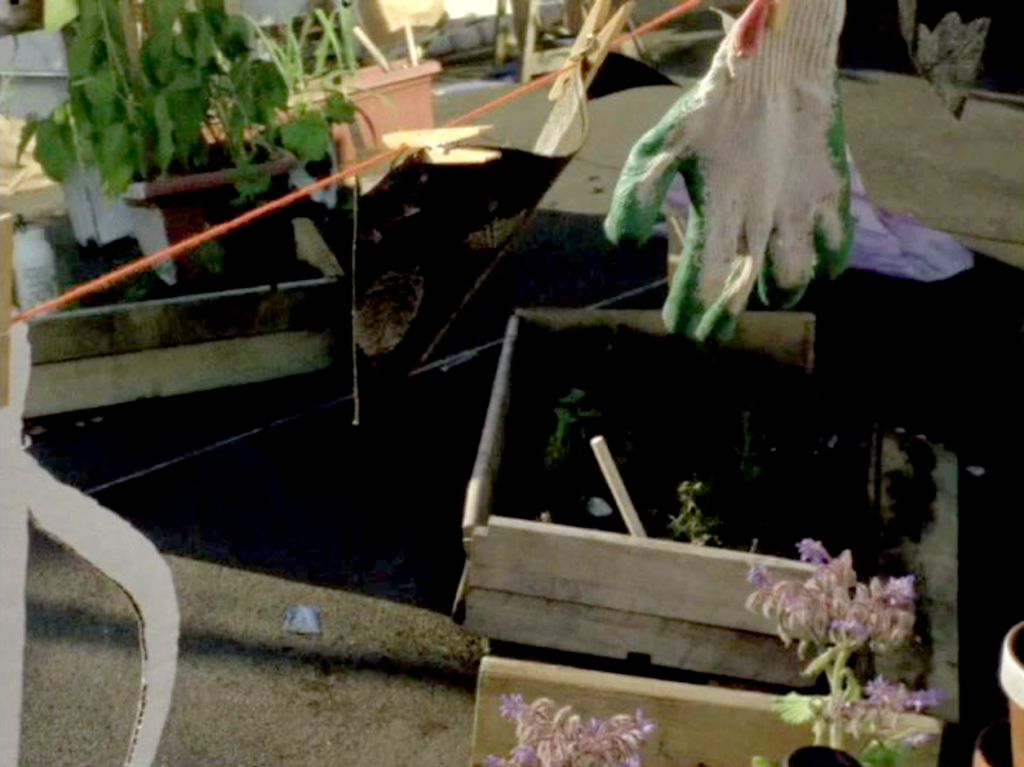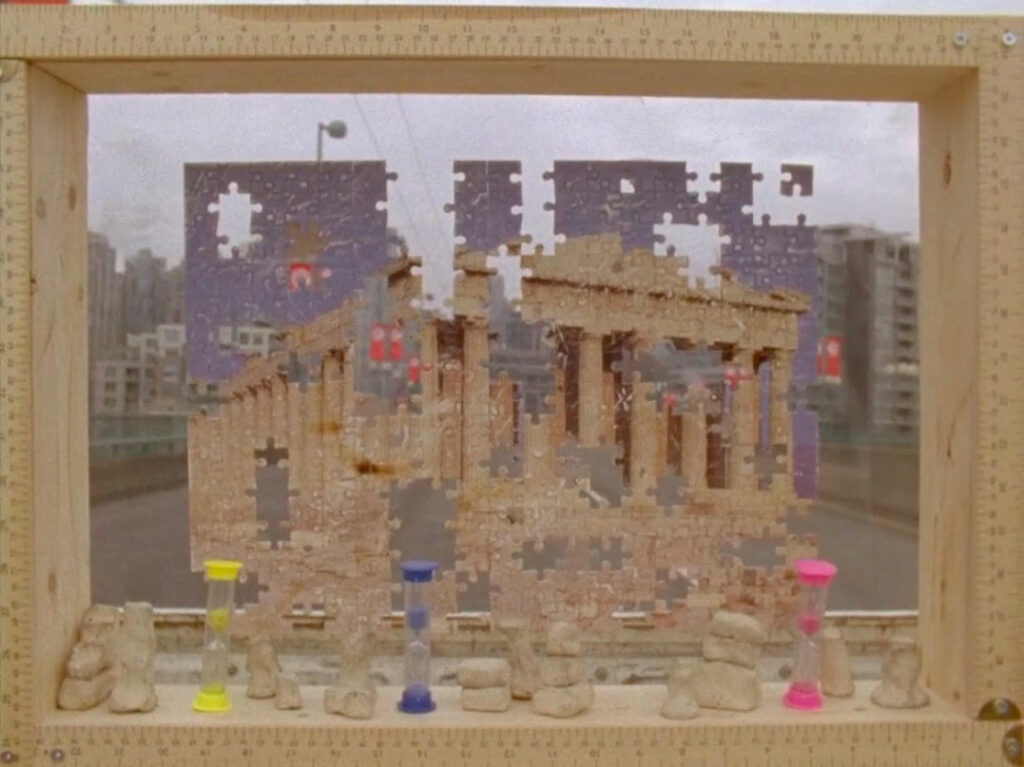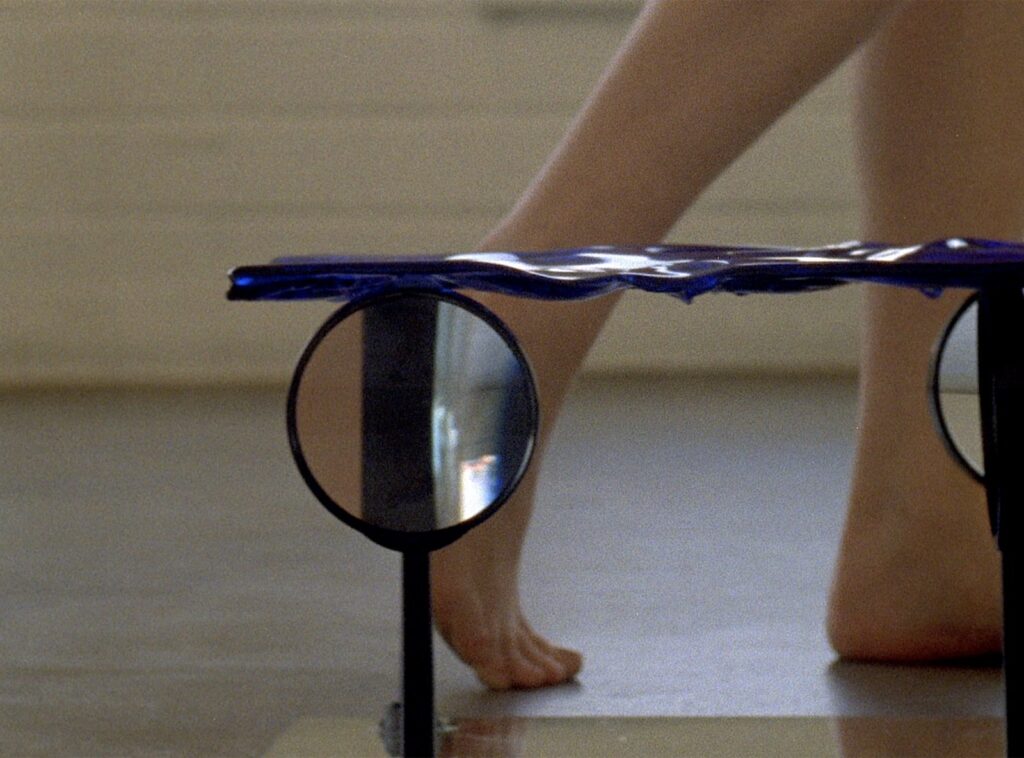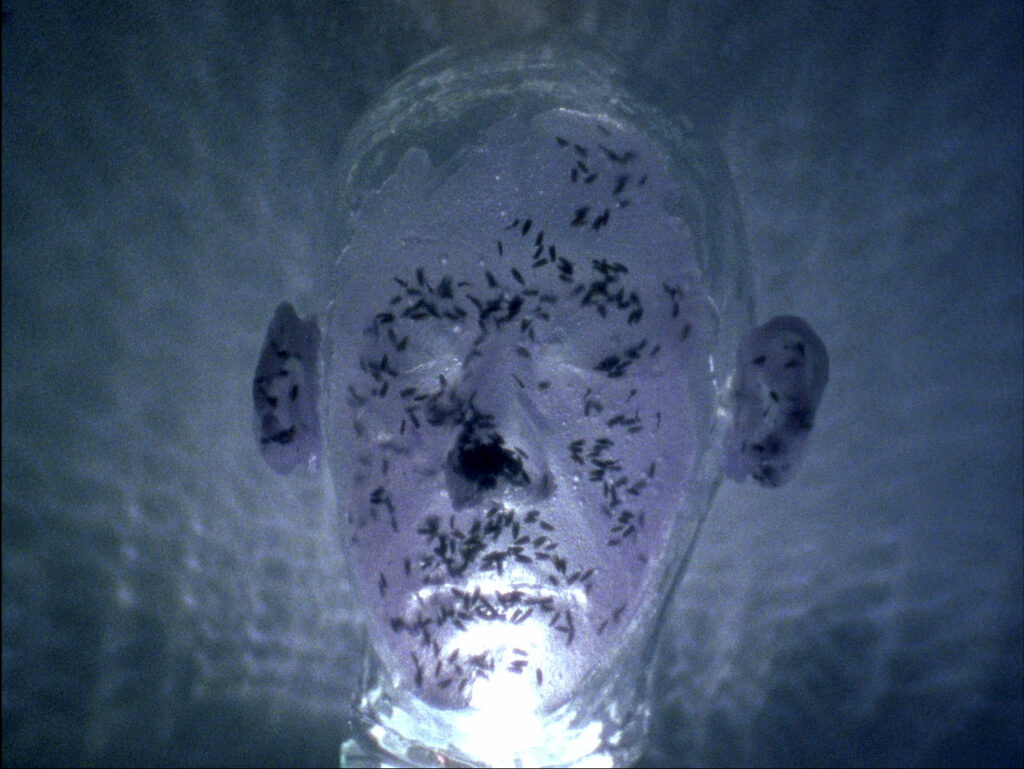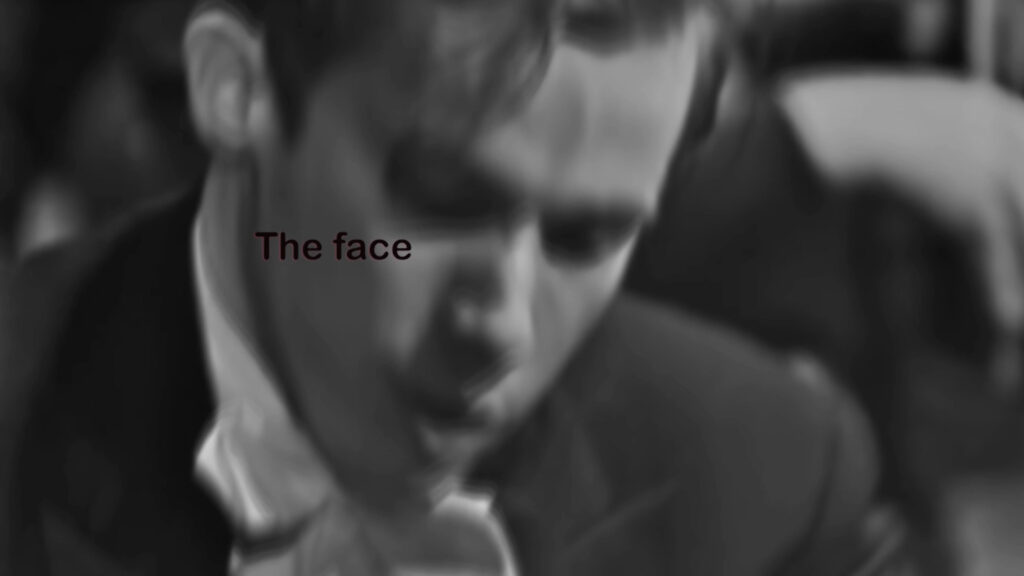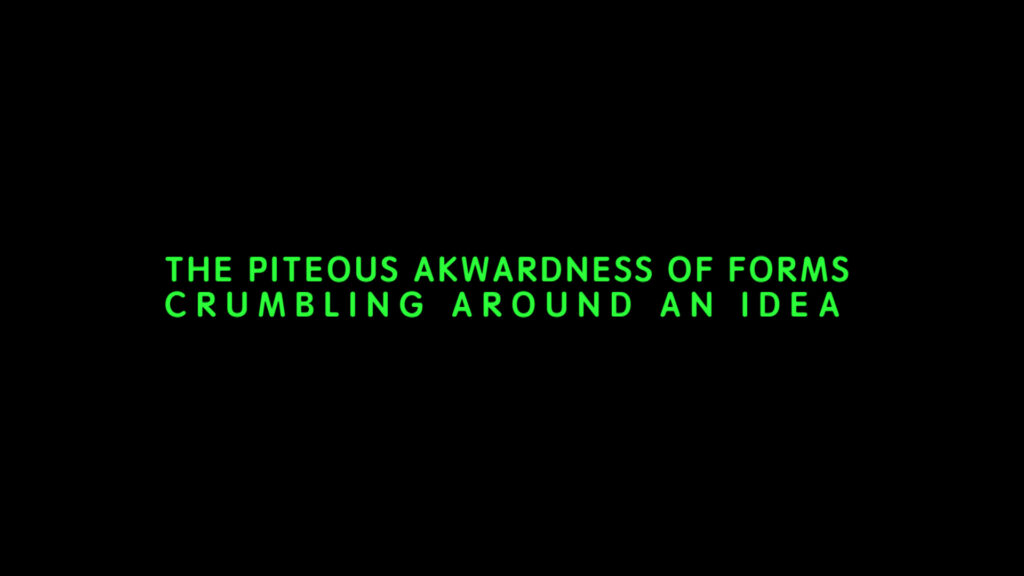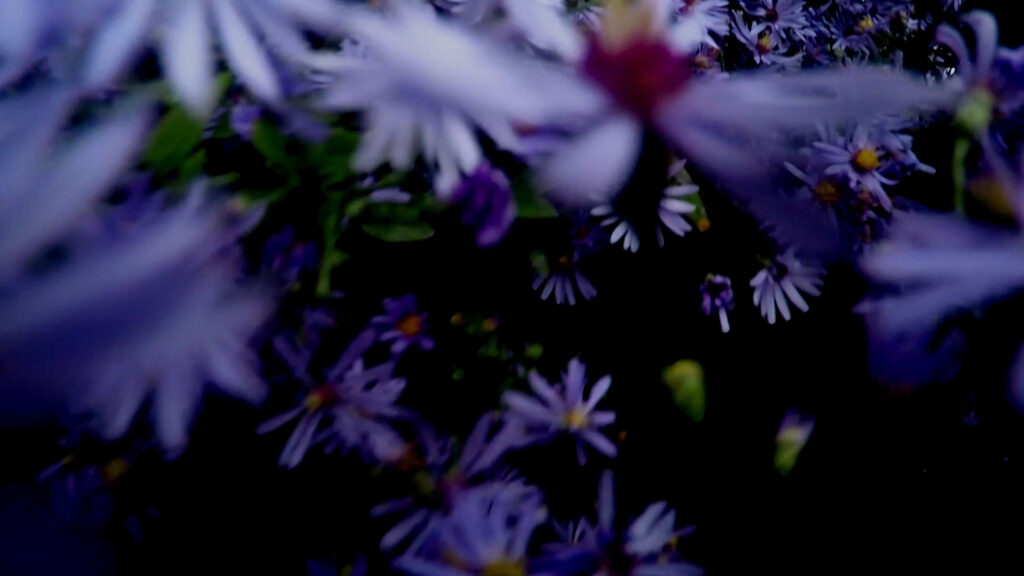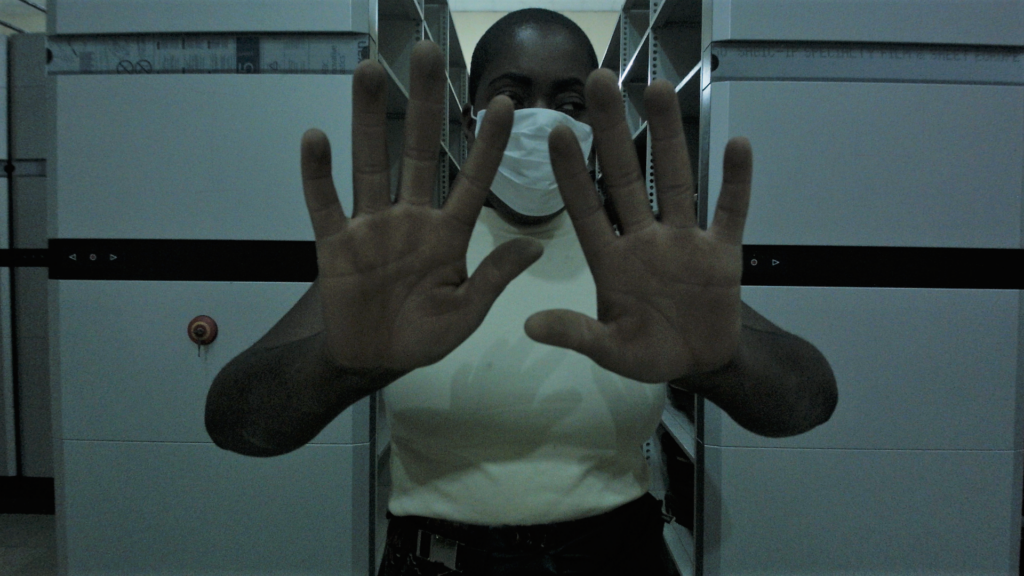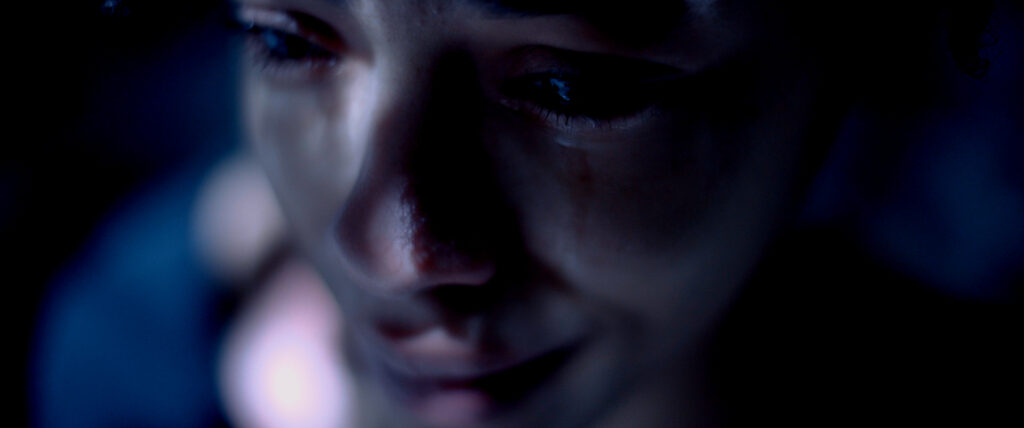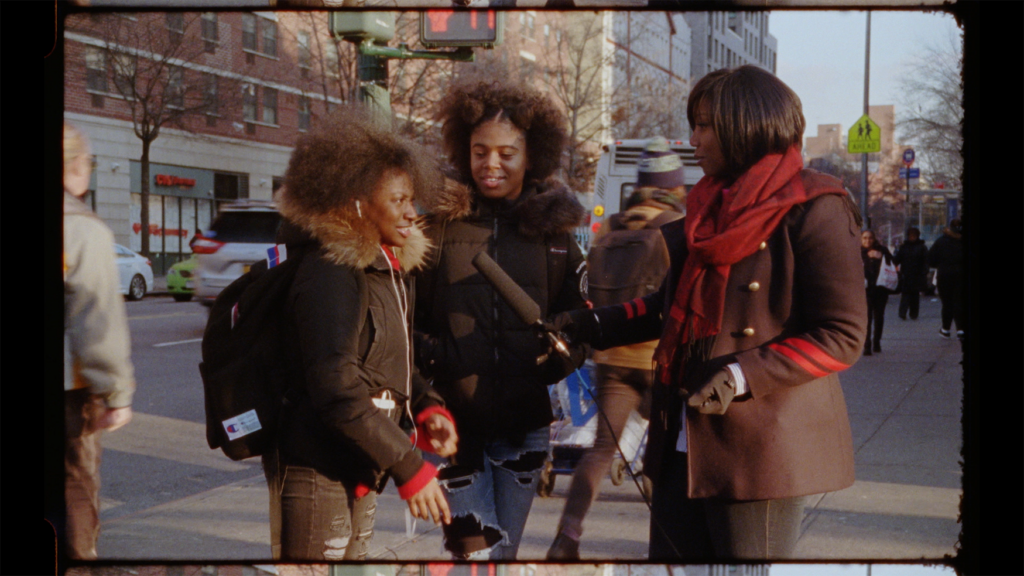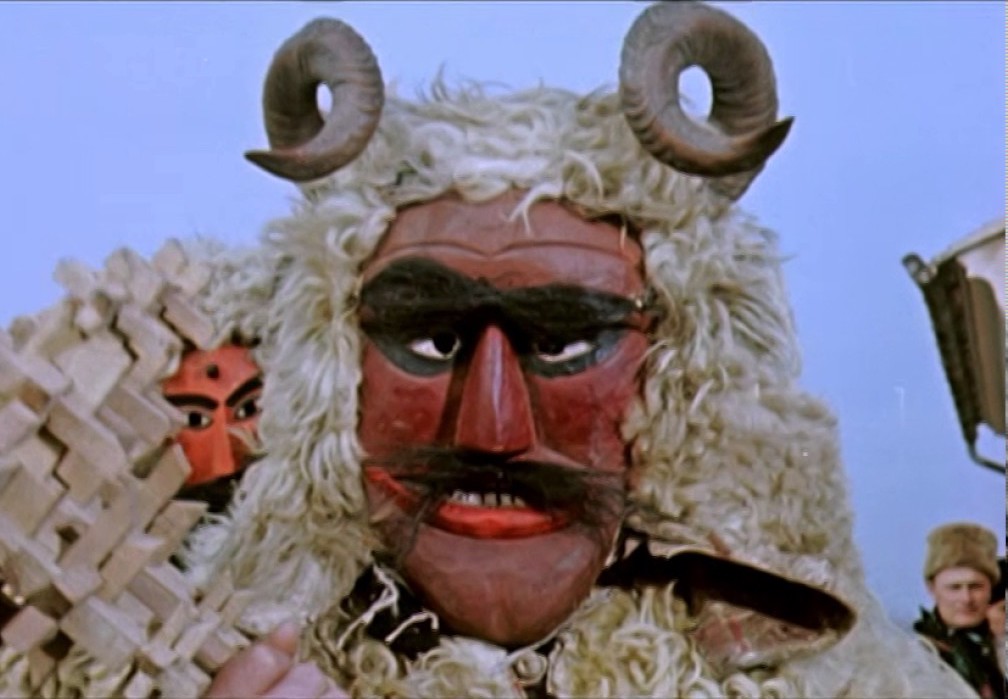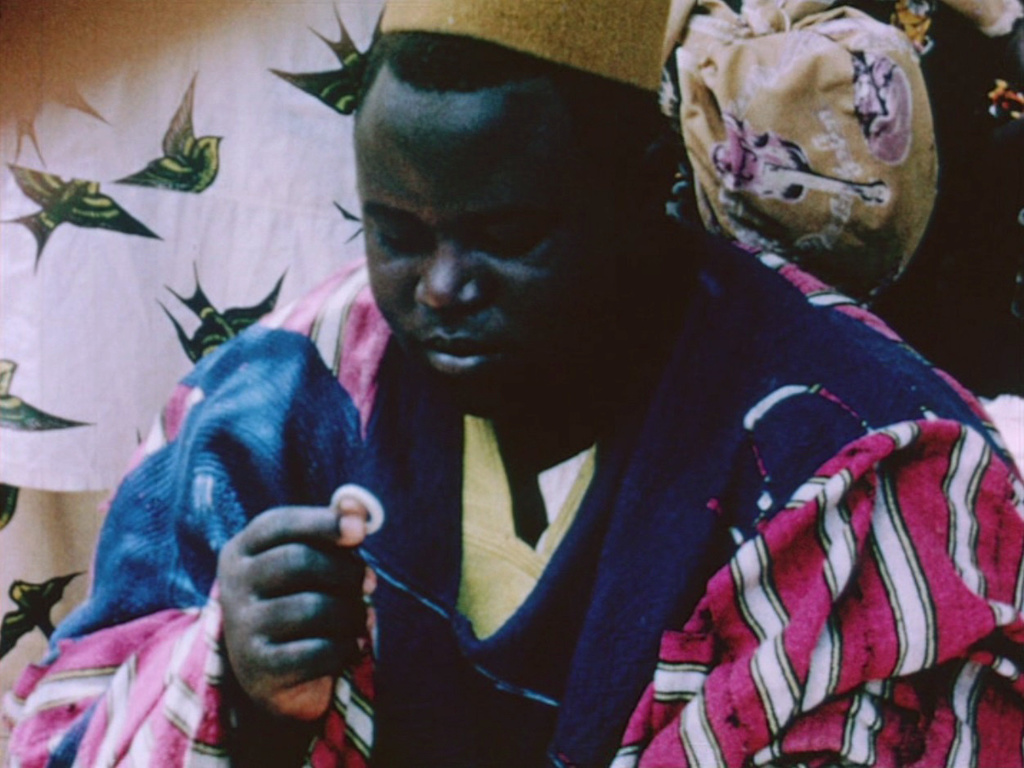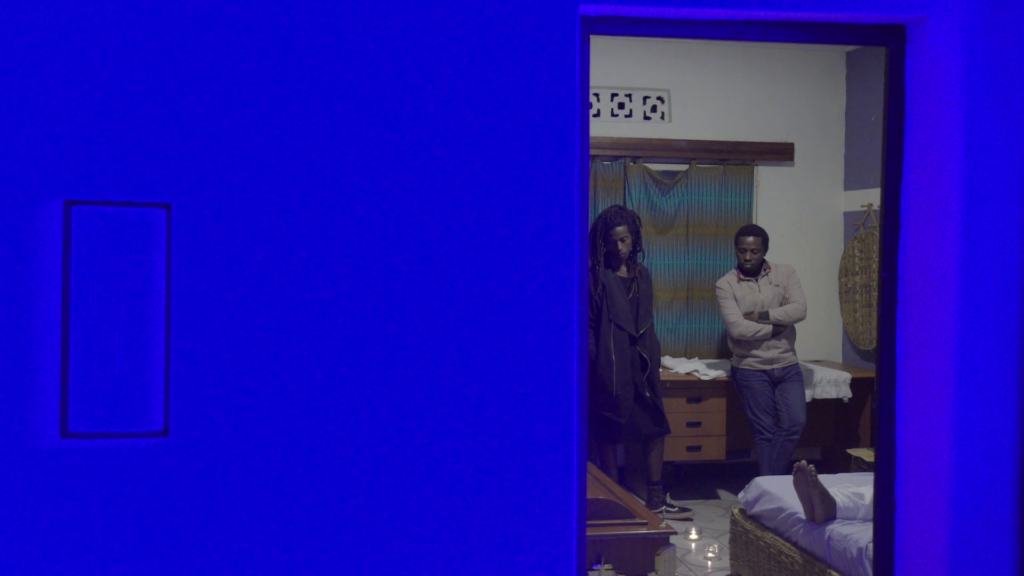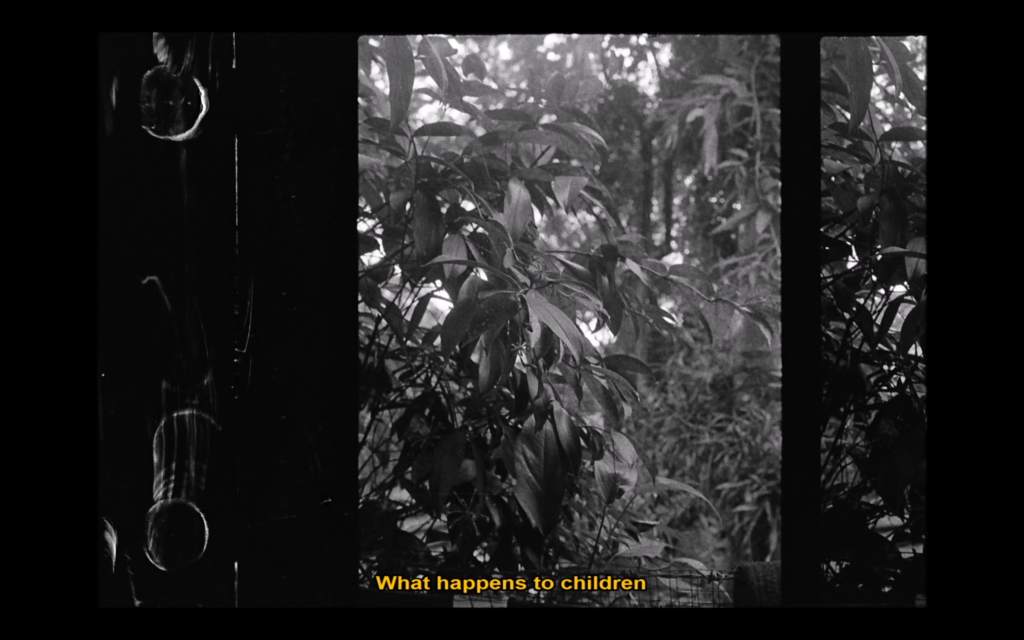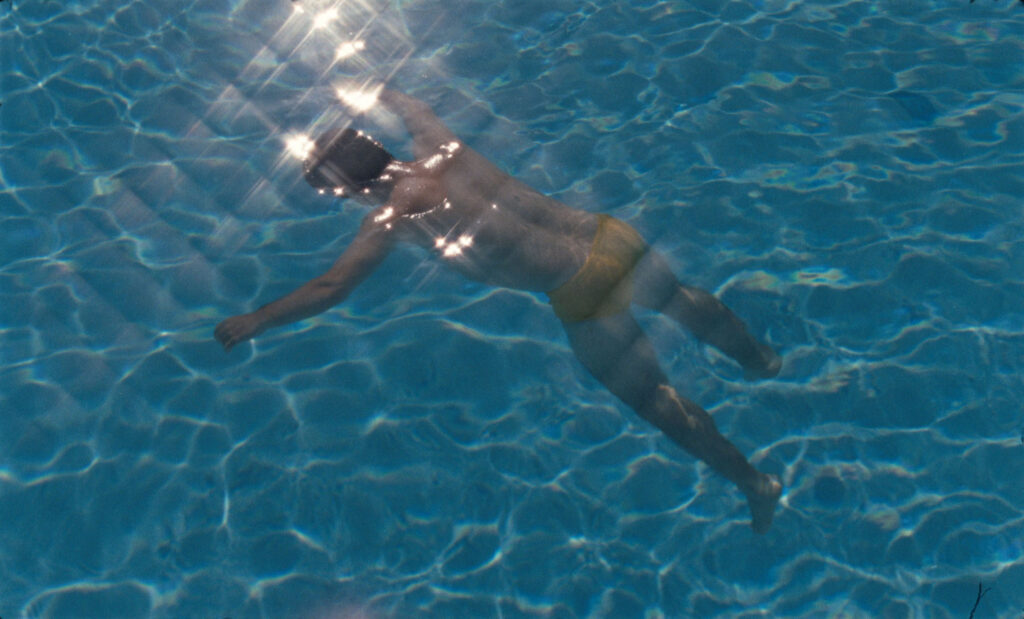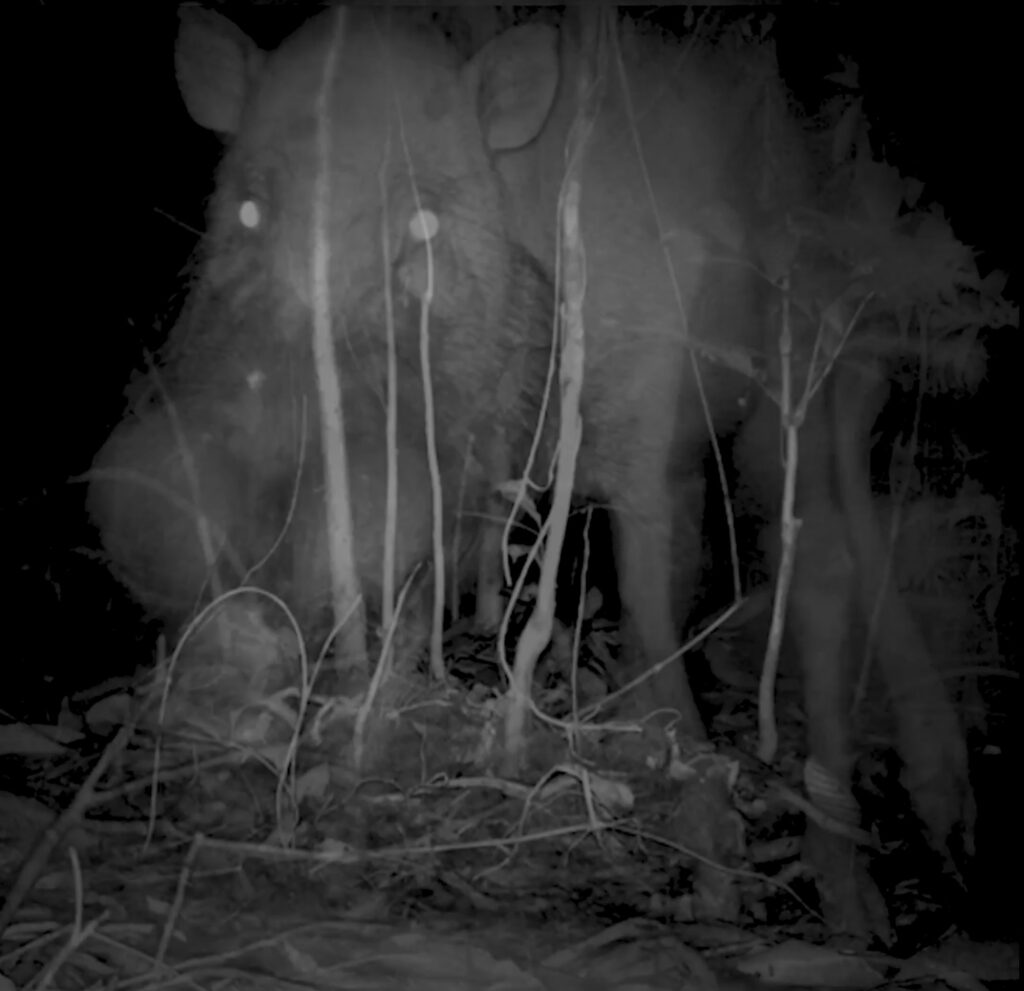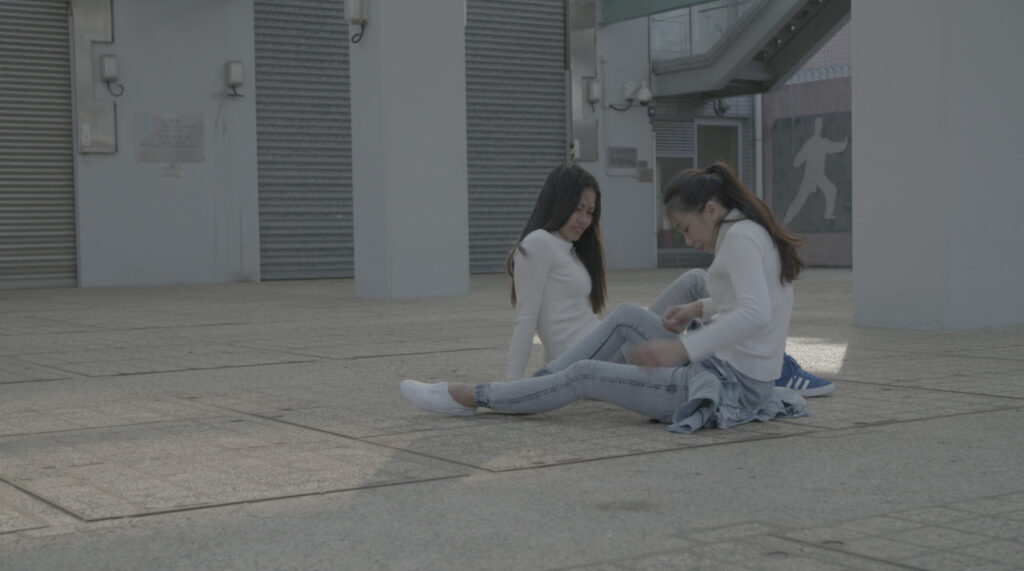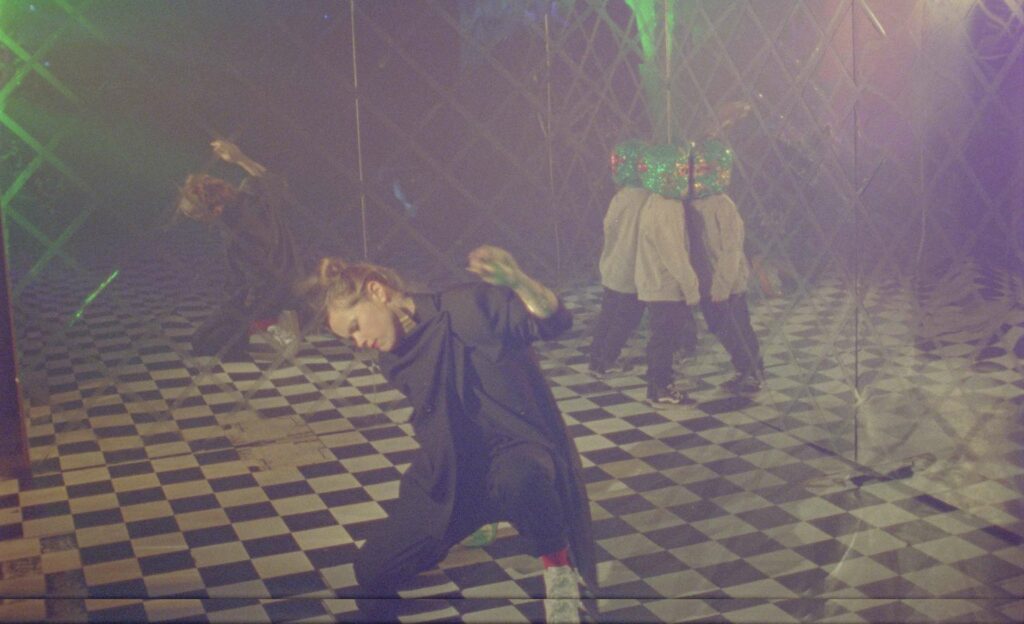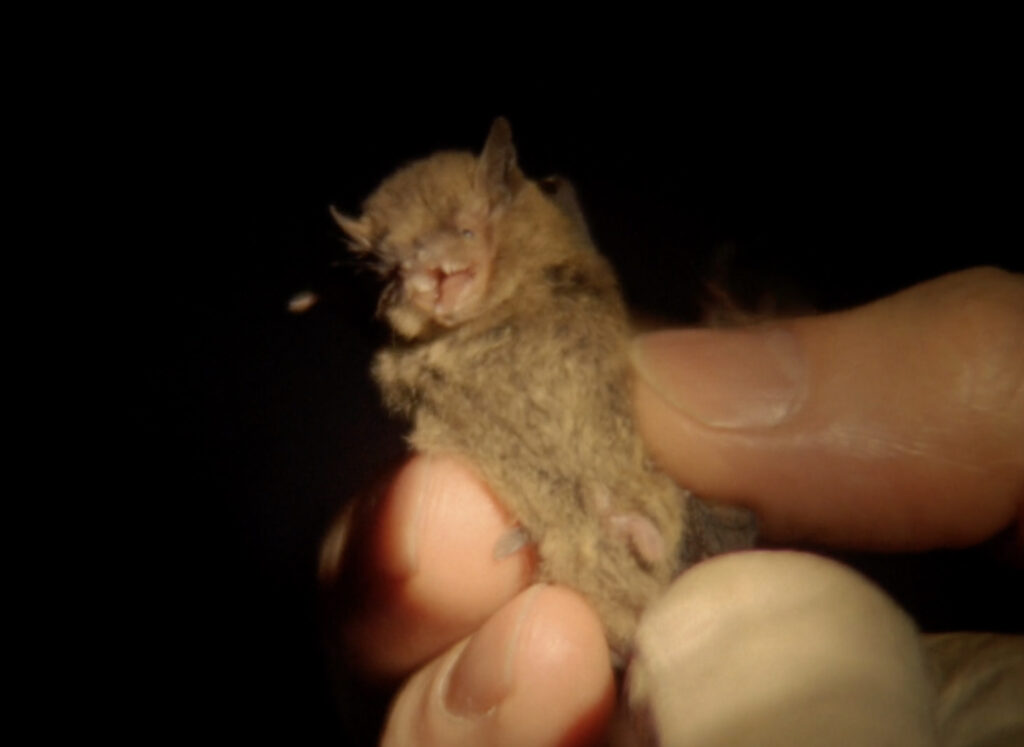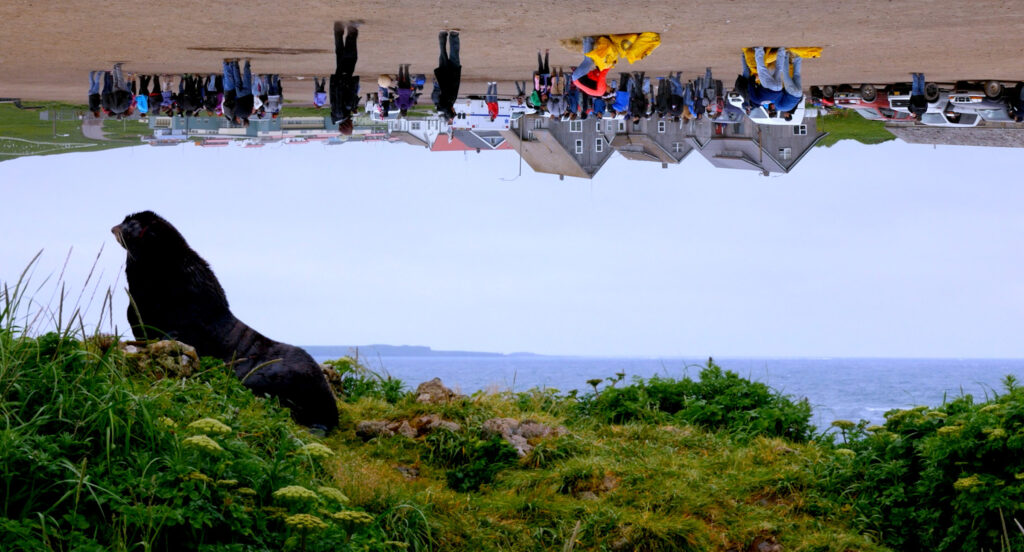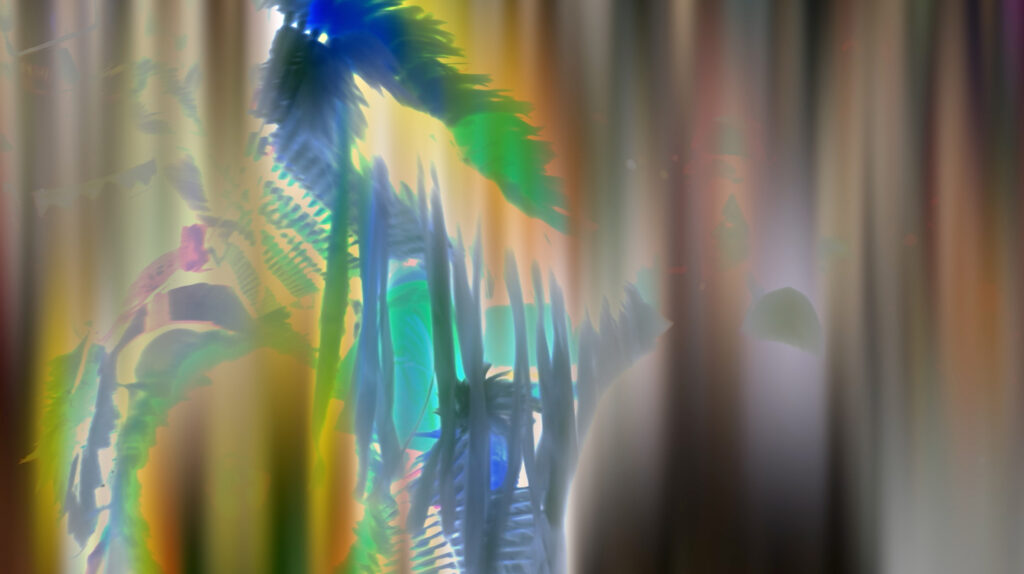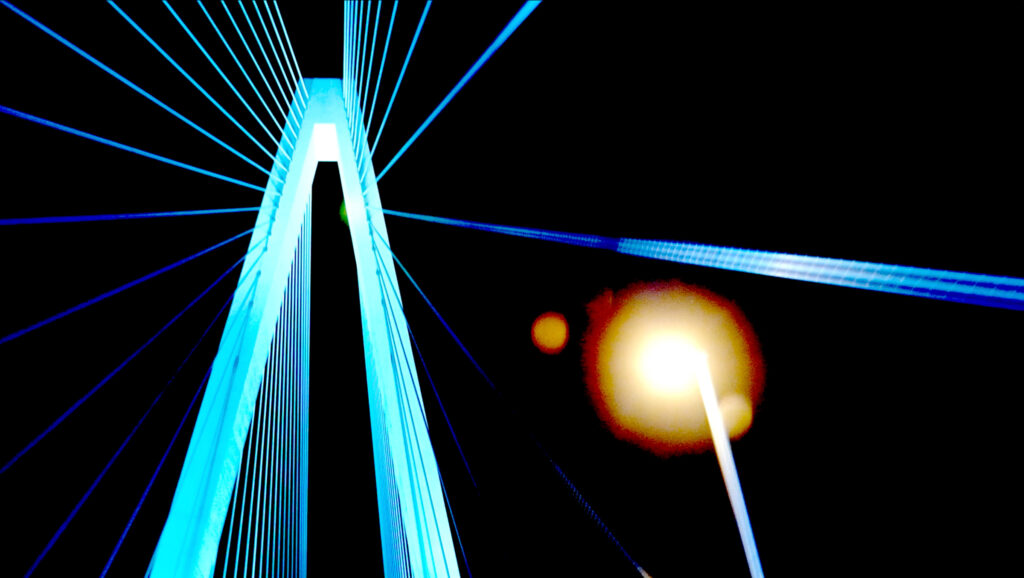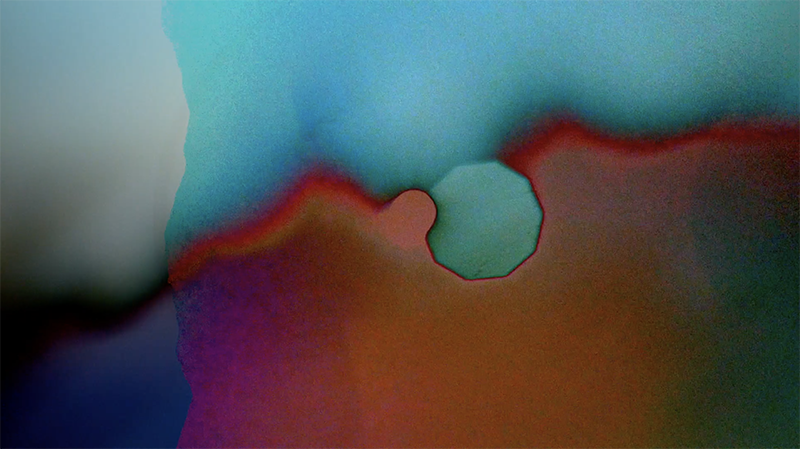In 19th century Paris, at the Salpêtrière Hospital, patients were hypnotized on stage to reproduce the symptoms of hysteria for public audiences. Over a century later, high school cheerleaders are fainting en masse…

Your Touch Makes Others Invisible
[2025 Opening Night] When a supernatural entity plagues a village community in war torn Northern Sri Lanka, a mother loses her son. Set in militarily occupied territory marked by 26 years of civil war, this hybrid docufiction made collaboratively, and secretly, with impacted Tamil communities lyrically examines the stories of missing people. A potent, elliptical protest poem moving with grace and purpose between disparate cinematic forms.
Brooklyn-based artist-writer Ayanna Dozier works across film, performance, and installation using auto-fiction, surrealist, conceptual, and feminist methods.
Her current research and artwork examines how transactional intimacy redistributes care from the private sector into public, social, and political relations.
A programme of new cinema inspired by the hallucinogenic properties of flowers, archival dissonance, and tales of a grumpy entity who talked only because it could not growl.
Celebrating the work of photographer and filmmaker Marion Scemema through the lens of her close friendship with artist David Wojnarowicz. The screening programme features several of Scemema’s short works, including a newly retrieved and re-edited cut of RELAX BE CRUEL; a seminal document of the Pier 34 warehouse project in New York.
A programme of filmic rhythm and blues – of love and fainting cheerleaders, and of our capacity for knowing and feeling in a present infused with trauma.
In the mind of an eleven year old girl, a single phone call erases her entire life. Iva Radivojevic’s subtle drama reconstructs fragments of childhood memory to trace currents of loss and trauma that followed her family’s displacement from the former Yugoslavia. With a dreamlike structure and a wistful, unsettling atmosphere, When The Phone Rang unearths dissonant relationships between history and memory.
In the aftermath of a conspiracy-minded father’s sudden death, his daughter inherits his patent for an experimental healing device. Featuring archives from Callie Hernandez’s late father, Invention explores the process of grieving a complicated parent; the ‘fictions and fantasies that follow loss, allowing us to bear disappointment both as individuals and publics in times of national decline’
When a supernatural entity plagues a village community in war torn Northern Sri Lanka, a mother loses her son. Set in militarily occupied territory marked by 26 years of civil war, this hybrid docufiction made collaboratively, and secretly, with impacted Tamil communities lyrically examines the stories of missing people. A potent, elliptical protest poem moving with grace and purpose between disparate cinematic forms.
One of Eadweard Muybridge’s earliest contributions to the photographic image were stereographs commissioned by the U.S. Army, capturing their war against the Modoc Tribe in Northern California. These stereographs, many of which were staged, are revisited here through violent collisions of image and sound – generating entangled histories of visual technology, genocide and expropriation of Indigenous populations.
Past and present infuse each other with strange energy across films that capture people and places at the borders of transformation. As the sun sets on ancient ruins a shutter opens and closes, and a light in the distance reflects on the glass of a soldier’s lonely watchtower.
A shopping list, a wildfire, the urban sprawl and a modern-day pirate. Soft collisions of memory and dream abound across films that trace the sometimes imperceptible impressions that capitalism leaves on our everyday lives.
Two films set in liminal spaces of exile. In the wake of dispossession, when dreams are deferred and memories bring pain, small acts of collective speaking generate new threads of resistance, liberation, and hope.
The first of two screening programmes animating the work of Basma al-Sharif, BFMAF24 Filmmaker in Focus.
Born stateless and of Palestinian heritage, her work explores cyclical political histories and conflicts. In films and installations that move backward and forward in history, between place and non-place, she confronts the legacy of colonialism through satirical, immersive, and lyrical works.
A relative’s likeness surfaces as a tattoo on the arm of a Ukrainian soldier and an army base in Oklahoma, built to fight Kiowa and Apache, is rededicated to aid in the fight against Putin’s Western expansion. Adam Piron explores the contradictions of colonialism and anti-settler solidarity across time, geography and the muddled spaces of TikTok, where representations of Indigenous peoples are caught up in the chaotic circulation of images.
Rea Tajiri’s vibrant, tender cine-poem is fashioned in collaboration with her mother, Rose, as together they confront the painful, curious reality of wisdom “gone wild” in the shadows of dementia. Made over sixteen years, the film blends fact and fiction, humour and sadness, to stage a fragmented, dream-like encounter between mother and daughter that blooms into an affectionate portrait of love, care, and a relationship transformed.
Funny, gross and outrageously over-the-top, Jon Moritsugu’s cult classic is a maximally irreverent slice of early 90s punk culture satirising representations of the Japanese-American family unit. Newly restored from eyeball-scorching Panavision, this is Moritsugu’s Asian freak-out magnum opus that shocked America when it was broadcast on television in the mid-90’s. The director himself plays twins (a drug-dealing bad-ass and a closeted math nerd) in a radically dysfunctional family that completely obliterates the noble myth of the “model minority”.
Inner and outer space interpolate in this series of films exploring relational dynamics between public and private worlds. Instagram filters, YouTube tutorials, dating apps and a wearable eye tracker become interfaces through which to perceive shifting notions of bodily autonomy in contemporary life.
Science meets speculative fiction in artist Deborah Stratman’s poetic, associative reflection on evolution and extinction from the point of view of rocks and various future others. Loosely based on two short stories by J.-H. Rosny, considered one of the founding figures of modern science fiction, and thinking with figures from Roger Caillois to Donna Haraway, Stratman troubles the limits of human perception, mining the farthest reaches of the biosphere for (im)material traces that bind past, present, and future.
A series of hypnotic, fragmentary encounters reflecting on creativity, desire, identity and transformation. Forms of transgressive potentiality are explored through poppers training videos, VHS tapes documenting an esoteric musical subculture, and a night of ritual shapeshifting in a Boston parking lot.
A programme of short works traversing hallucinatory dreamscapes, contested landscapes, and the precarious movements of bodies through time and space. Argentinian auteur Lucrecia Martel screens alongside contemporary artists, Basim Magdy, Marwa Arsanios and Fox Maxy.
Meriem Bennani’s playful sci-fi trilogy mixes live action, day-glo animation, and a kaleidoscopic score by Fatima Al Qadiri to explore the entangled politics of immigration, state control, and the border zone. Episodes focus on inhabitants of the fictional island of CAPS (short for ‘capsule’), a magnetically sealed megalopolis created to intercept refugees attempting to teleport illegally into the US. Citizens work together to develop new modes of defiance and resistance, harnessing not only emergent biotechnologies but also the liberatory potential of joy and humour.
Watch One Way or Another (1977) Sara Gómez’s “bold work of revolutionary feminism” alongside Back Inside Herself (1984) by S. Pearl Sharp. Back Inside Herself is newly restored by Cinenova and will be accompanied by On the Inside a prose poem by London-based poet Sarah Lasoye.
The screening is a prelude to Cinenova’s The Work We Share – a programme of 10 newly digitised films from the Cinenova collection. All have been captioned by Collective Text and are accompanied by 10 new artist response commissions, which will tour the UK throughout 2021-22.
This screening will be accompanied with in person conversations with Éiméar McClay & Cat McClay (a body is a body is a body) and Rehana Zaman (Alternative Economies).
Rock Bottom Riser is an immersive, exploratory and deeply inquisitive study of an island world at sea. The film fashions a layered and heterogeneous portrait of Hawaii through its cosmogony, its uncertain future and the scattered lens of the present. Through a combination of research, observation of the islands’ landscape and conversation with many different people who call it home, artist-filmmaker Fern Silva highlights the complexity and contradictions of a place which can be understood as beautiful and serene but also under constant existential threat.
Rajee Samarasinghe’s body of work tackles contemporary sociopolitical conditions in Sri Lanka through the scope of his own identity and the deconstruction of ethnographic practices. BFMAF 2021 presents a series of Samarasinghe’s 12 short films shot over a decade—an archive of images navigating the terrain of migration, memory, and impermanence.
Fairytales and fables form the fulcrum of these short films. Zlatko Bourek’s psychedelic-era animation The Cat is a day-glo adaptation of Aesop’s ‘Venus and the Cat’, in which a man falls in love with a cat-turned-woman.
Films by Miko Revereza, Ayo Akingbade, Daisuke Kosugi and Jenny Brady
Ricocheting from point to point, this might lead to discovering new people, ideas and forms of communication, breeching familiar spaces, close and far. Or is it perhaps the eternal return, reconnecting us with family, compatriots or community?
Q&A with filmmakers Miko Revereza, Ayo Akingbade, Daisuke Kosugi and Jenny Brady
Films by Dani ReStack & Sheilah ReStack, Cooper Battersby & Emily Vey Duke, Adam Khalil, Zack Khalil & Jackson Polys, Anya Tsyrlina & Sid Iandovka and Heidrun Holzfeind
History is what’s happening. It’s constantly unfurling never static and always in flux. Rather than being resigned to it, it’s incumbent upon us to shape and mould it into the gooey, slimy substance that we want our world to resemble. The time is now, the place is everywhere, all at once…
Q&A with filmmakers Emily Vey Duke, Anya Tsyrlina & Sid Iandovka and Heidrun Holzfeind
Steffanie Ling (Artistic Director, Images Festival) presents Broken Clocks, a selectrospective of Vancouver-based artist Kasper Feyrer’s 16mm films originally shown as installations. By filming their sculptures as props, and the gallery installation as set, each exhibition seeps into the next, creating the causes and conditions for the next film to germinate. Feyrer’s use of ‘practical film effects’—such as physical objects and non-digital special effects made for the verisimilitude of the camera—fashion a world of techniques and materials designed to mirror our own without the pretext of permanence.
Q&A with filmmaker Kasper Feyrer
Co-presented with Images Festival
Films by Steve Reinke, Onyeka Igwe, Rajee Samarasinghe and Ja’Tovia Gary
From Harlem to Giverny, patrilineal tales to Artaud, nature will give way to febrile artifice. What dizzying force is this—throwing us between opposites: deafening silence vs. slide-projector clicks; glitch-y celluloid vs. HD; projected futures pressed up against the archive? But there’s calm around the corner—a reprieve from the chaos of subjection. “Can I live?”, one voice enquires, rhetorically. Consider how the subtext to our fervid biopolitical project.
Q&A with filmmakers Steve Reinke and Onyeka Igwe
This shorts programme looks at filmmakers cinematically adapting folkloric legends from their own cultures. Busójáráskor is an ethnographic documentary on the Hungarian celebration of Busójárás, in which people dress as horned monsters with carved wooden masks. Nigerien filmmaker Moustapha Alassane’s The Ring of King Koda adapts a Zarma legend in which a king tests the loyalty of a fisherman. Nana Tchitchoua’s Impressions from Rustaveli melds the Georgian medieval poet’s writings with the cinematic language of Sergei Parajanov and Jack Smith.
Films by Deborah Stratman, Patrick Staff, Philbert Aimé Mbabazi Sharangabo, Lesley-Anne Cao, Chema García Ibarra & Ion de Sosa
‘Lazy Girl’ is an emblem of refusal. Like Hammer and Deren she moves to her own rhythm, turning resistance into art. So did Eric, a singular figure whose “proto-practice” was poetry—but he ran out of time. Marx said all politics reduces itself to the politics of time; too bad this leisurely splash in Montánchez is hardly a refusal of capitalism’s tempo but let’s kill time before it kills us.
Camera Trap is a comparative video using moving images made a hundred years apart.
Glittering and shimmering moments: the tender touch of your child; the lumbering gait of a dancer dressed in an improbable costume; the luxury of a well-earned day off work. These glances, snapshots and memories are bound together in films alternating between the mundane and fantastic.
Q&A with filmmaker Beatrice Gibson
Artist-filmmaker Jessica Sarah Rinland presents the world premiere of her film Black Pond, a film that explores the activity within a common land in the south of England. Previously occupied by the 17th century agrarian socialists The Diggers, the land is currently inhabited by a Natural History Society whose occupations include bat and moth trapping, mycology, tree measuring and botanical walks.
After two years of filming on the land, the footage was shown to the members of the Society. Their memories and responses were recorded and subsequently used as part of the film’s narration. The film does not offer a comprehensive record of the history of humans within the area. Instead, it explores more intimately, human’s relationship with and within land and nature.
Following the film, Rinland will dissect and expose materials related to the film, detailing content from a forthcoming publication related to the film. She will stage moments from the Society’s yearly town hall meetings, discuss historical maps and laws, letters of complaint and footage she shot in the same location years before her encounter with them.
Filmmaker Sky Hopinka presents a screening of his short films in conversation with Nicole Yip, Director of LUX Scotland. Based in Milwaukee, Sky Hopinka (Ho-Chunk/Pechanga) focuses on the interconnections between his indigenous homeland, language, landscapes, and identity. Anchored by both surreal perspectives and grounded realities, Hopinka’s sublime films create maps of dreams and memories, pushing against cultural and personal boundaries, creating meaning where none had existed before.
Hopinka will read from his debut publication Around the Edge of Encircling Lake (2018) and the screening will include:
Kunįkága Remembers Red Banks, Kunįkága Remembers the Welcome Song, 2014, US, 9 mins
Jáaji Approx, 2015, US, 15 mins
I’ll Remember You as You Were, Not as What You’ll Become, 2016, US, 12 mins
Dislocation Blues, 2017, US, 17 mins
Fainting Spells, 2018, US, 12 mins
Special thanks to Ruth Hodgins, Walker Art Center



